
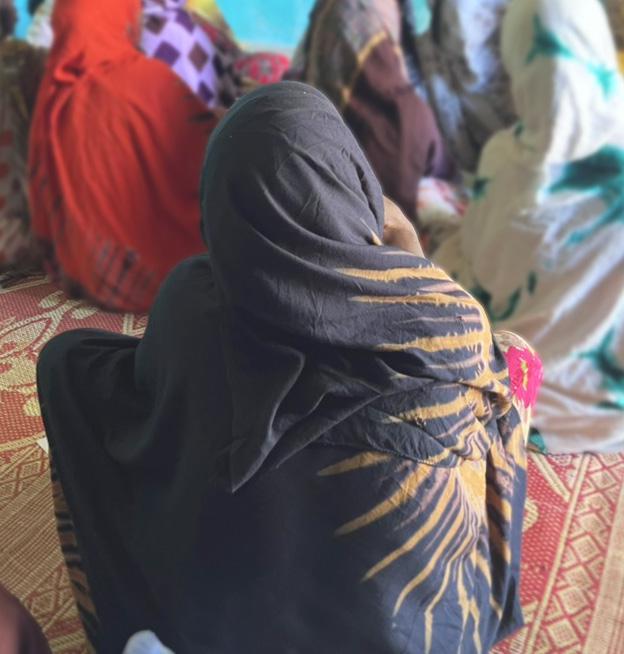
CHRIST-LIKE PRESENCE IN THE MIDST OF CONFLICT Nazarenes across the world are faithfully following the call to be peacebuilders BREAKING THE SILENCE Empowering women in rural India ncm.org ISSUE 01 20 24
How reading, writing, and bees are uniting a community. ARMENIA • CHILE • MICHIGAN, USA • INDIA • ETHIOPIA • KAZAHKSTAN • HAWAII, USA
RISING TOGETHER
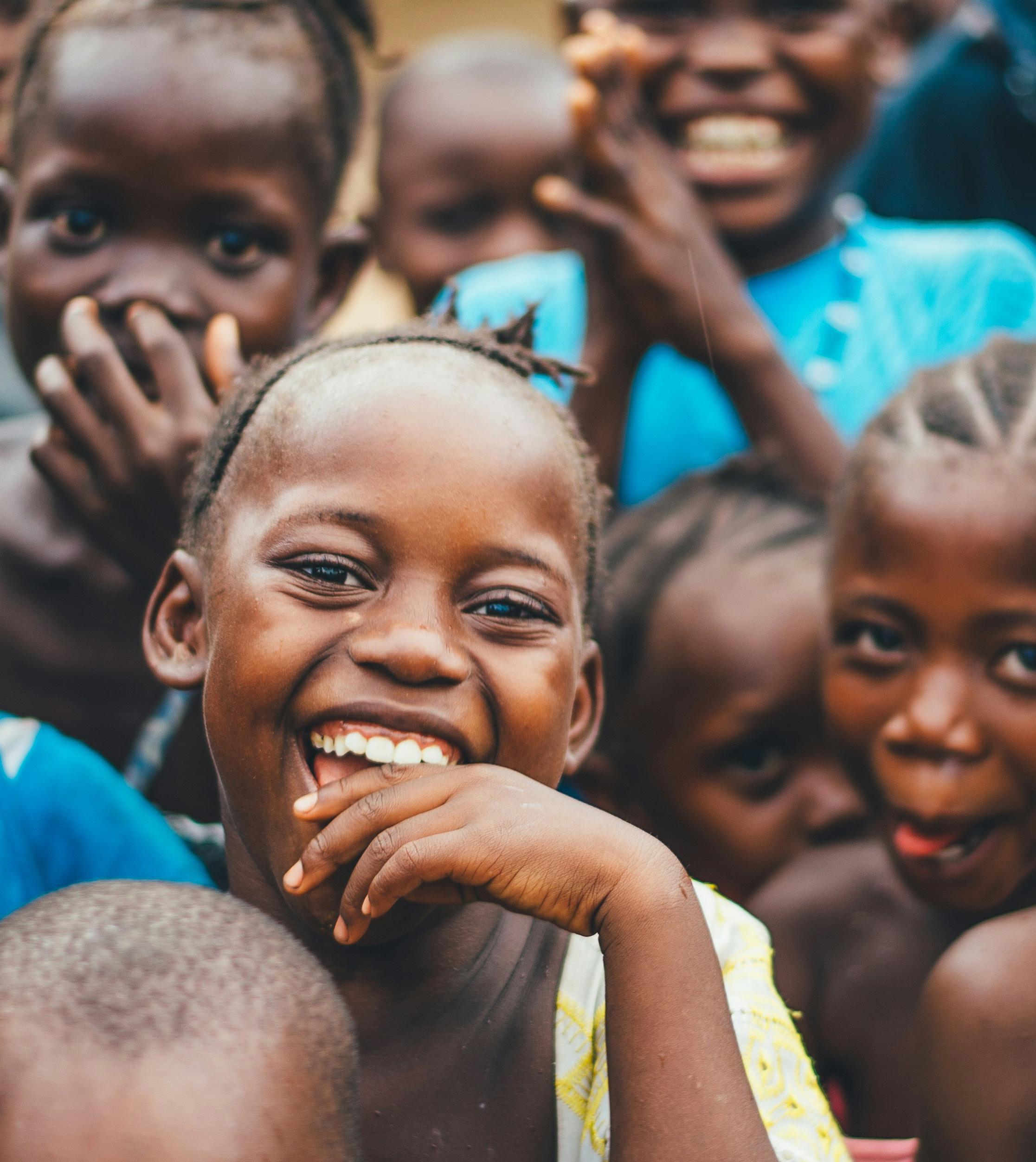
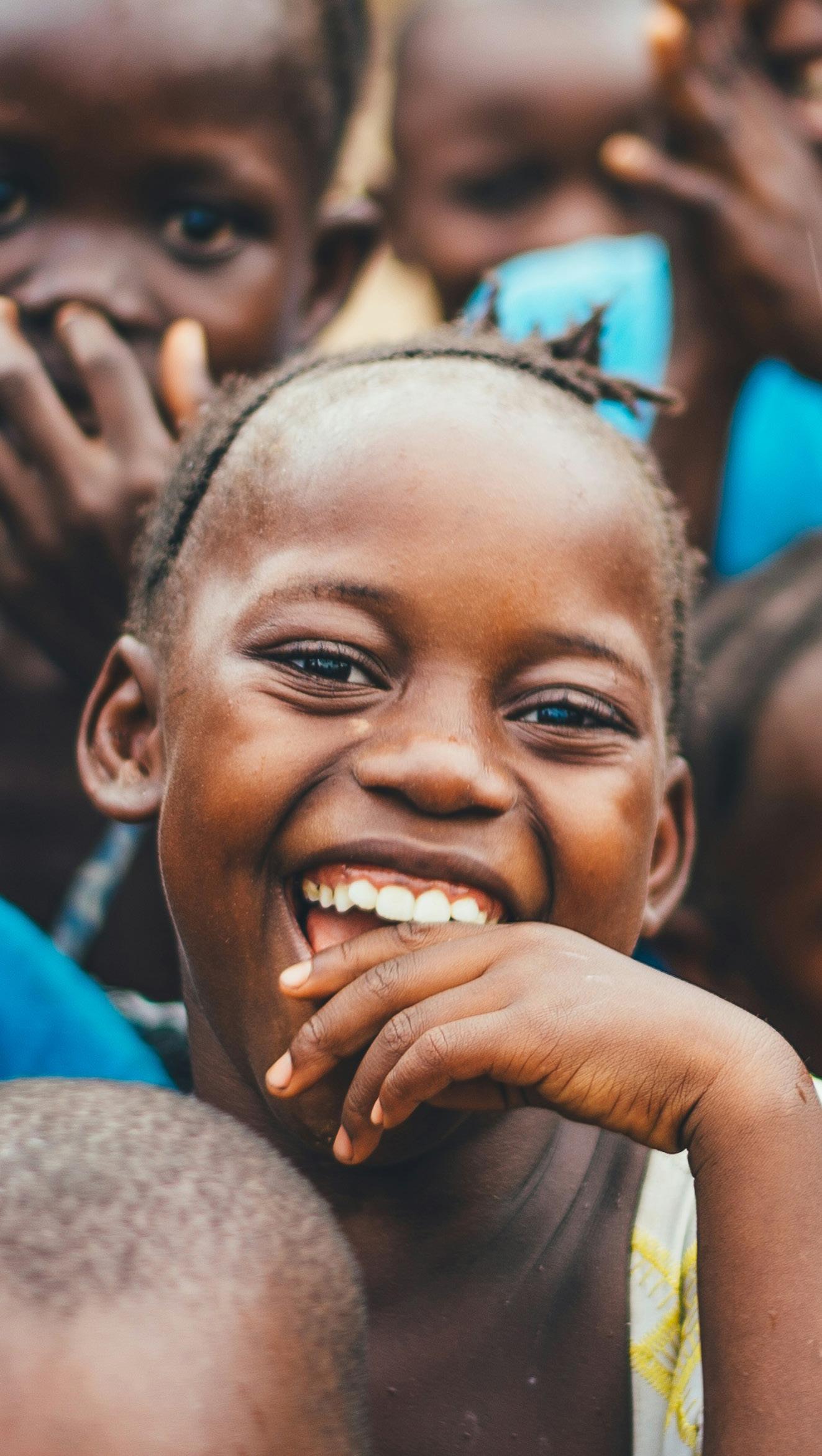
ISSUE 01 • 2024
NCM Magazine aims to tell stories of the church living out Christ's compassion. Our hope is that all of us would hear the call to compassion as a lifestyle.
Following the example of Jesus, Nazarene Compassionate Ministries partners with local congregations around the world to clothe, shelter, feed, heal, educate, and live in solidarity with those who suffer under oppression, injustice, violence, poverty, hunger, and disease. NCM exists in and through the Church of the Nazarene to proclaim the gospel to all people in word and deed.
NAZARENE COMPASSIONATE MINISTRIES
17001 Prairie Star Pkwy, Lenexa, KS 66220 (800) 310-6362, info@ncm.org
MAGAZINE DESIGN: Ruckus Group
COVER PHOTO: Dana Franchetti
FOR A FREE SUBSCRIPTION visit ncm.org/magazine
SUBSCRIPTION CHANGES email info@ncm.org or write to NCM Magazine, 17001 Prairie Star Pkwy, Lenexa, KS 66220
QUESTIONS? COMMENTS? email info@ncm.org
LEAVE A GIFT THAT IMPACTS GENERATIONS TO COME. FOR MORE INFORMATION on Child Sponsorship Endowments, which sponsor children in perpetuity, contact the CHURCH OF THE NAZARENE FOUNDATION 866-273-2549
otherwise indicated, all Scripture quotations are from the New Revised Standard Version (NRSV) of the Bible, copyright 1989 by Division of Christian Education of the National Council of Churches of Christ in the U.S.A. Used by permission. All rights reserved. www.NazareneFoundation.org
Unless
CHRIST-LIKE PRESENCE IN THE MIDST OF CONFLICT
How Nazarenes across the world are faithfully following the call of Christ to be peacebuilders in their communities.
12 BREAKING THE SILENCE
In India, local churches are partnering with NCM to break the stigma around women’s menstrual health through education and creative approaches to economic development.
18 LOVE HAS NO BOUNDS
A church in Hawaii, USA is dedicated to long-term recovery after devastating wildfires ravaged the island of Maui.
30 RISING TOGETHER
An economic development project for women in one community in Ethiopia is having an impact that will last for generations to come.
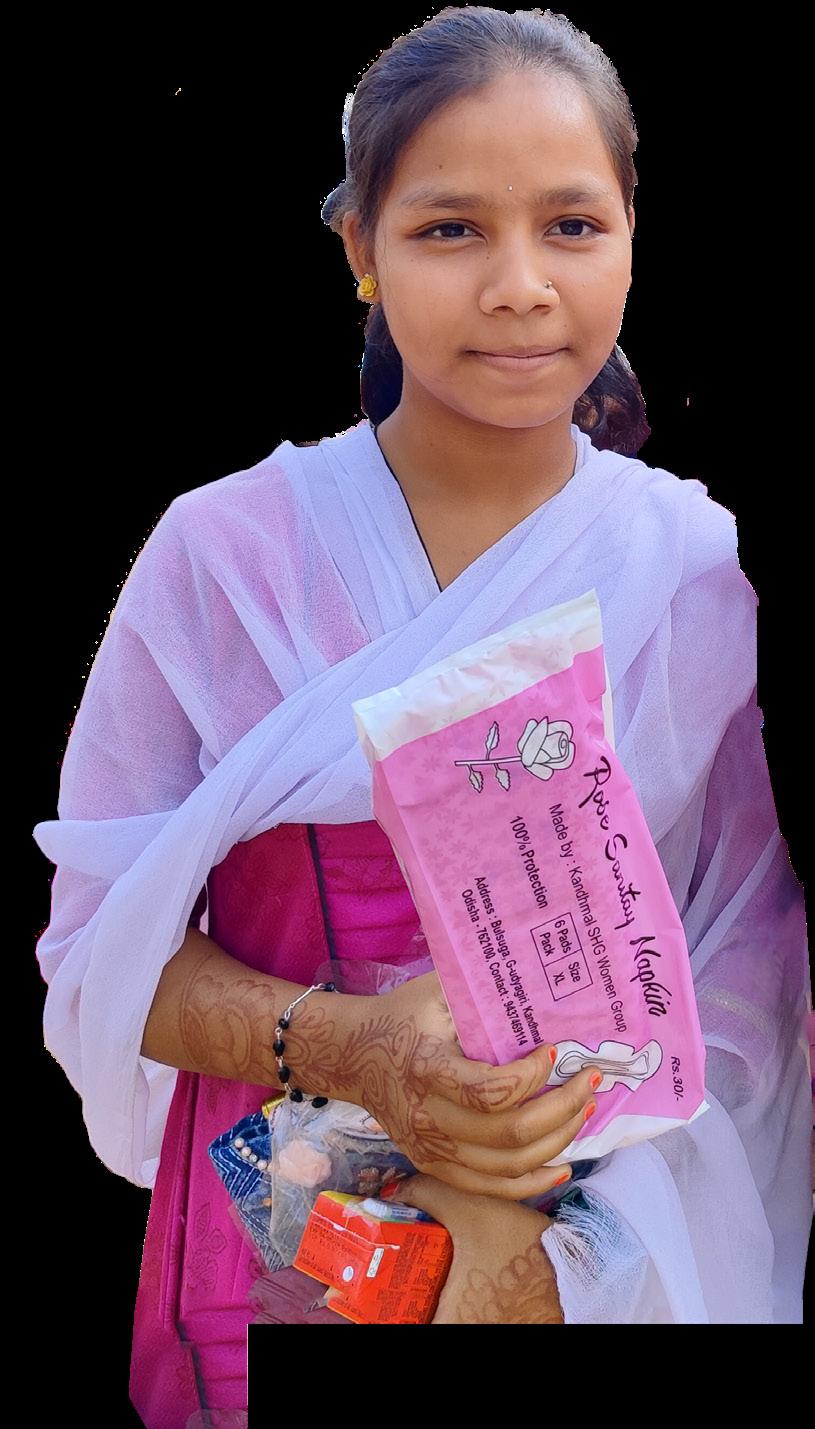
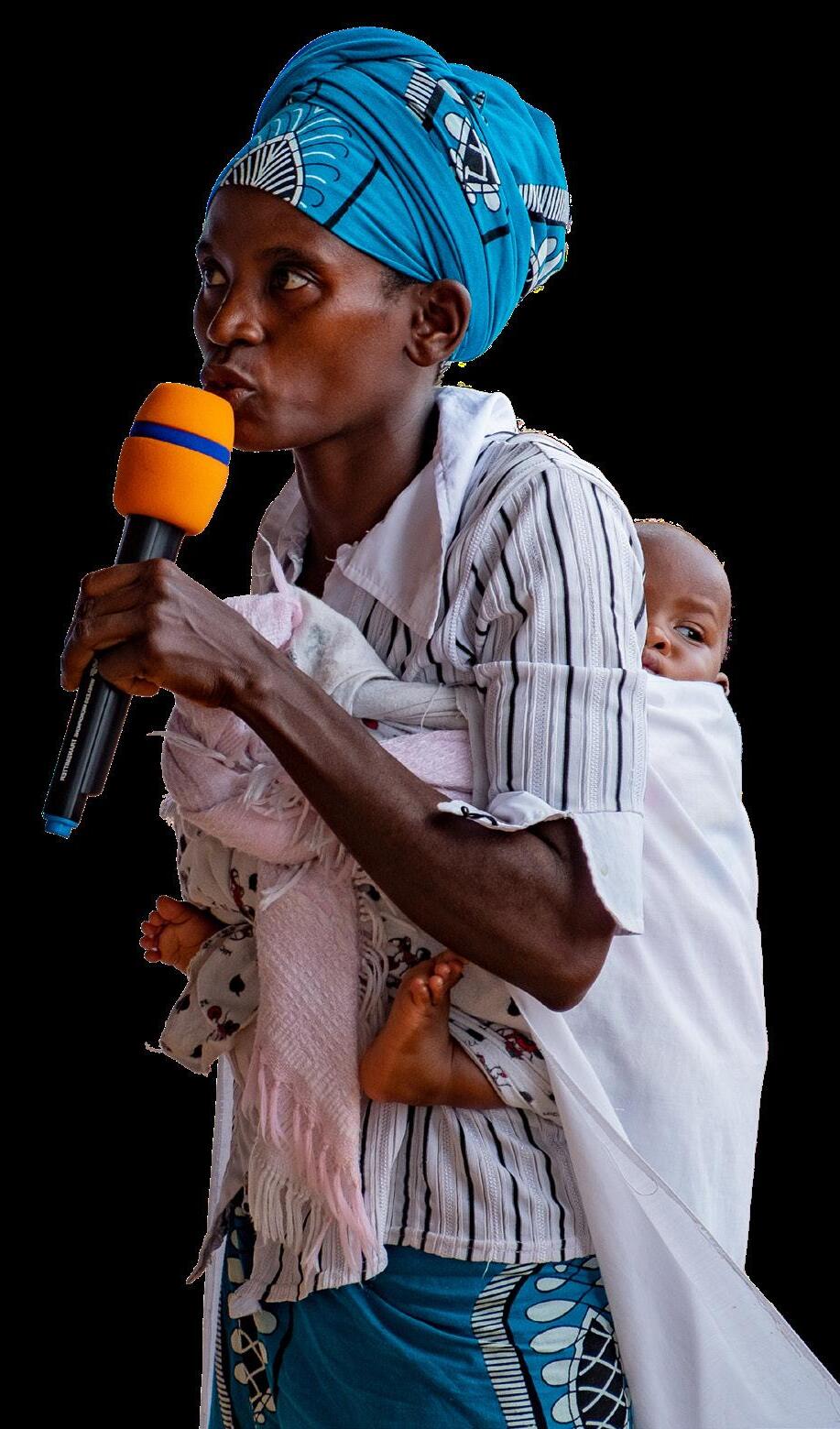
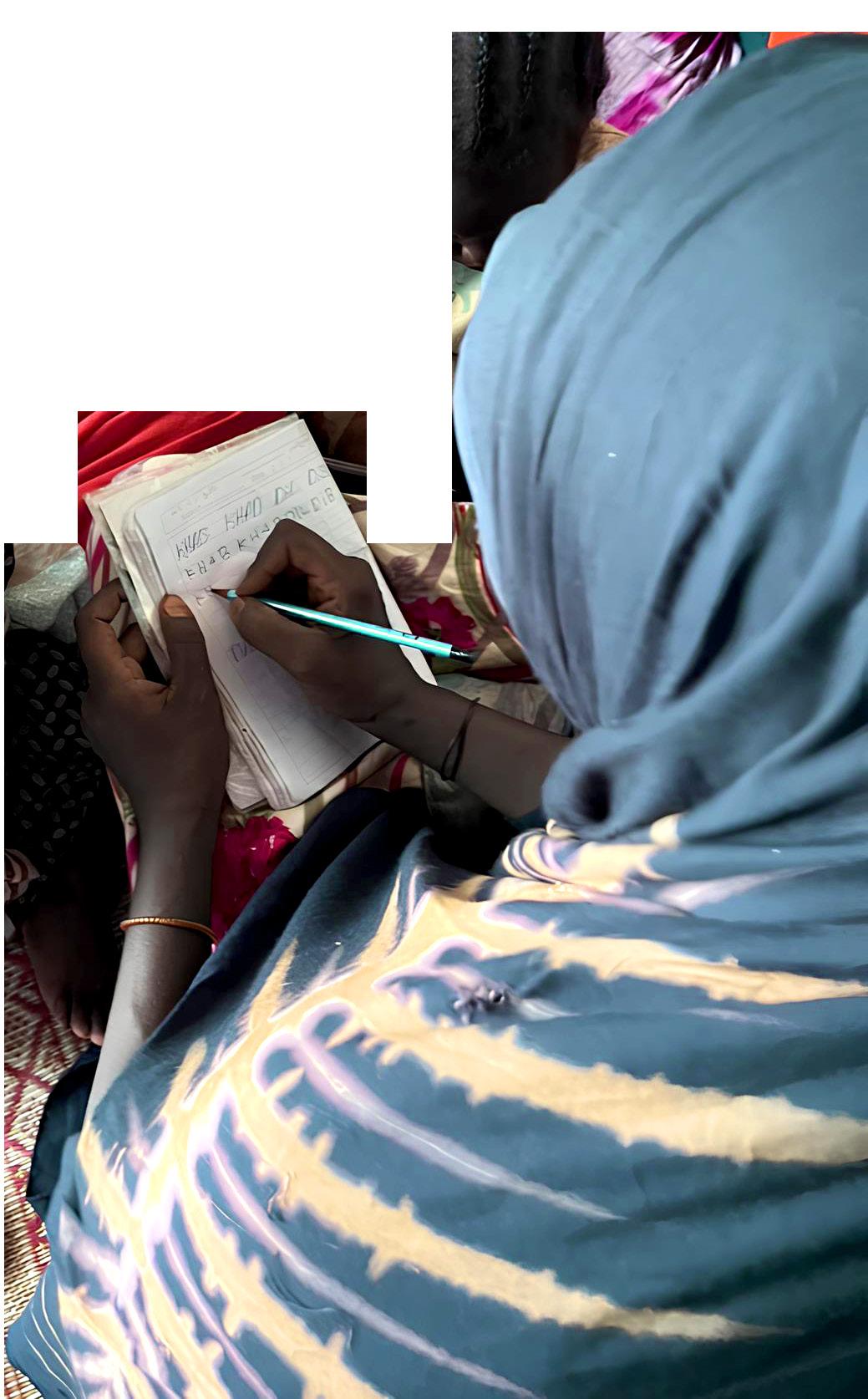
Table of DEPARTMENTS COVER STORY connection points 05 voices 36 snapshot 37 go deeper 38
CONTENTS
08

notes

GOD’S SHALOM: MAKING ALL THINGS NEW
Revelation 21:5 “And he who sat upon the throne said, "Behold, I make all things new." Also, he said, ‘Write this, for these words are trustworthy and true.’” (NRSV)
In Revelation, we find that through Jesus, God is “making all things new. We find this hope again and again as we follow Jesus’ ways to live into the new world he ushered in and is creating through his life, death, and resurrection..” It is not our job to make all things new. Rather, as we follow Jesus to the ends of the earth, living out and teaching his love, peace, and the Way of Christ, Christ works through his church to bring his Kingdom on earth as it is in heaven. In Jesus, we find a unity and a freedom that draws us to our ultimate hope. Praise God, the Lord is making all things new!
“Shalom is rooted in a theology of hope, in the powerful, buoyant conviction that the world can and will be transformed and renewed, that life can and will be changed and newness can and will come.”
- Walter Brueggemann, Living Toward a Vision: Biblical Reflections on Shalom, 74.
God’s peace and restoration of the world—God’s shalom—takes a paramount place in Scripture, particularly for God’s people in the Old Testament. The broader vision of shalom, however, is difficult to describe in the English language, not to mention from a Western mindset. Peace, in and of itself, falls short of God’s shalom, which also signifies total unity and freedom, complete restoration, and hope for the salvation of the world. But, for now, let us at least start with peace and Jesus calling for peacemakers in the Sermon on the Mount. "Blessed are the peacemakers, for they will be called children of God," (Matthew 5:9).
Even as I hope in Jesus, it is with a heaviness of heart that I write the opening notes for the first NCM Magazine of 2024. War and destruction, insecurity, and violence have become far too normalized in our world. Ukraine, Gaza, Haiti, and multiple nations throughout Africa, as well as each of our own neighborhoods and streets, are plagued with the destruction that violence causes.
The need for peacemakers is critical in our world, and what’s more, this is precisely how Jesus brought us Good News! The seeds of the Gospel are sown by those who live by faith in Jesus. In the following pages, you will see how faith is leading Christians to bring
change in their communities through the power of Jesus. As followers of Christ, we are called to share our hope wherever we go. May we be agents of peace in our world.
For many Christians across the globe, however, it is difficult to share faith. Barriers of language, fear, control, and persecution are a part of everyday life. Additionally, danger and risk, imminent threats of violence from warring groups, and the potential for loss of life are far too real.
These threats were real for Jesus and his followers as well. Even still, like the Apostle Paul, our pastors and leaders cry out, “For I am not ashamed of the gospel; it is the power of God for salvation to everyone who has faith, to the Jew first and also to the Greek. 17For in it the righteousness of God is revealed through faith for faith; as it is written, ‘The one who is righteous will live by faith.’” (Romans 1:16-17).
We, too, put ourselves in the footsteps of Paul and recognize that he is writing to all of us who may be afraid but called to share the hope we have and trust in the power of the Gospel. Paul writes that the power of God for salvation is for everyone, including Jews and Gentiles, equally. We also understand that in our present age, everyone includes all the people of the world, and as you will witness in the stories in the pages ahead, Armenia, Ethiopia, India, Kazakhstan, Maui, and Michigan (United States).
There are no limits to where God desires to share the ultimate hope shown in Christ's love for the world. As followers of Jesus, we must sow the seeds of peace that are Good News. Read on and be inspired by our leaders' commitments to live out love around the globe. God is making all things new. We are invited to turn and join God’s plans for restoration.
 Nell Becker Sweeden, Director of NCM
Nell Becker Sweeden, Director of NCM


04 2024 ISSUE 01
opening

Holistic Child Development
THE HEART OF A KINGDOM SERVANT
In the heart of Yerevan, Armenia, lives Miriam*, a remarkable young woman whose journey with the church began at the tender age of seven and has since blossomed into a testament of faith, service, and love for the Kingdom.
Mariam’s connection with the Church of the Nazarene started through the vibrant and engaging Vacation Bible School (VBS) held at the church. Drawn in by the crafts, the loving atmosphere, and the warmth exuded by the church members, Mariam found more than just a weekly gathering; she discovered a home away from home.
For a decade, Miriam faithfully attended the Kids Club through the Nazarene Compassionate Ministries child sponsorship program, cherishing the fun-filled activities and forming lasting bonds with the church community. It was during this time that the seeds of faith were planted in her heart, leading to a pivotal
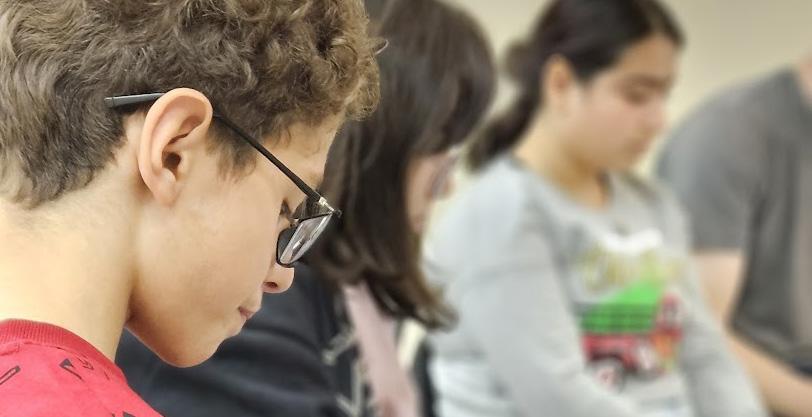
moment at the age of thirteen when Miriam accepted Christ as her personal savior. From that moment forward, her life took on a new purpose centered around serving the Kingdom.
As she embraced her faith, she felt a calling to give back to the place that had nurtured her spiritual journey. Now seventeen, Miriam dedicates her time and energy to helping run the same Kids Club where she first encountered the love of Christ.
This past summer, she took on a leadership role, orchestrating a VBS program that touched the lives of more than 40 children. Miriam’s commitment to service extends beyond the walls of the church. She is currently pursuing a degree in finance at university. She sees her studies as a means to contribute to the community and make a positive impact.
Despite her busy schedule, Miriam remains deeply rooted in her faith, finding strength and purpose in her relationship with God.
“The Nazarene church is my home. It is the place where I discovered the power of faith and found a family of believers who embraced me and supported me every step of the way,” said Miriam.
This loving community has changed Miriam’s life, and she is excited to serve others the way she has been served.
* Name changed for safety

NCM MAGAZINE / NCM.ORG 05
Story and photos by Crystal Gibbons
connection points

QUESTIONS & ANSWERS WHAT DOES IT MEAN TO LIVE OUT COMPASSION DAILY?
"Living compassion is a lifestyle; it is not exclusively reacting to situations of obvious need, but it is, on a daily basis, being able to bring the sweet gaze of Jesus to all the people we meet, whether you know them or not. It is smiling on the subway at someone you don’t know, giving your arm for someone to cross the street, listening to someone who needs to tell what ails them, asking if everything is okay, or traveling with a team to do a specific job, and praying for those who suffer. In short, living every day as Jesus lived, with and for people. I cannot separate in my head the idea of helping someone at a certain moment and ignoring them at another. I believe that living compassion is definitely a lifestyle that integrates our faith, the Word of the Lord, and love."
- Marlena Rojas Ribeiro, Special Education Teacher at Mirada de Amor
"Compassion is what the teachings of Jesus look like walking around in the neighborhood. It’s what happens in Matthew 8, when Jesus comes down from teaching the Sermon on the Mount and immediately begins to heal people. It is to be shaped by the teachings of Jesus so that my outlook on people is the same as Jesus’ outlook."
- Marlene Webster, Shiawassee Hope Executive Director
"Compassion means being a change in your community. We learned that the community can change with just simple things. Many people on this earth think they want to start only the big things. If you start with just basic empowerment, it works. Compassion is about being a kind person who loves, respects, and helps others. People often don’t know their rights or are overwhelmed with what step to take. Compassion is to empower people, teach them to open their eyes, and remind them that, as a human, they have value.”
- Abal, project leader in Ethiopia
"I want to add the adjective “Christian” to the question. To live a life of Christian compassion means to see the needs of the world through the compassionate and loving eyes of Jesus and do what is possible with one’s resources (multiplied by the power of God’s Spirit) to meet those needs. Christian compassion may often lead to opportunities to share the good news of salvation in Jesus Christ, but at its best, Christian compassion is not an evangelism strategy but one of the central ways God’s people posture themselves to a broken world.”
- Dr. Scott Daniels, General Superintendent for the Church of the Nazarene
06 2024 ISSUE 01
connection points
Compassion WORD OF GOD
THROUGH THE
EVERYDAY COMPASSION
Compassion is not always our first response when faced with the needs around us. Sometimes, we have sympathy but are not moved to act in solidarity. Henri J.M. Nouwen wrote about this tendency: “Compassion is hard because it requires the inner disposition to go with others to the place where they are weak, vulnerable, lonely, and broken. But this is not our spontaneous response to suffering. What we desire most is to do away with suffering by fleeing from it or finding a quick cure for it.” How can we become more equipped to have a posture of compassion at all times?
REMEMBER GOD’S HEART
As children of God, we are beneficiaries of God’s deep compassion (Psalm 103:8). Jesus was moved by his Father’s compassion as he ministered publicly on earth, healing and feeding the crowds that came to him (Matthew 9:36). With the knowledge that God is stirred in the same way to care for us and our needs, we can then turn and pour out compassion towards others as an act of thankfulness and worship.
REMEMBER THE STORIES REMEMBER TO PRAY & PLAN
Each one of us carries memories, experiences, and circumstances that shape who we are and how we act. What is your own history? How has it shaped the viewpoints you hold and the choices you make? To better cultivate compassion in the face of need, we must put ourselves in the stories of the people we encounter. What would our response be if faced with the same set of circumstances? What would we need if we had the same difficulty? These questions can help grow our hearts and help us stand in solidarity with those who are suffering.
Compassion is more than a feeling—it requires action. Acting compassionately to care for people requires us to give of our time, our resources, and our skills. This level of engagement isn’t easily done without preparation. Whether we need to begin to budget so we have funds to contribute to charitable causes or evaluate time in our schedule to serve in an outreach ministry, without prayer and planning, it can be hard to know how best to help. Ask God to show you what needs you are best equipped to meet, and then put a strategy down on paper. Above all, pray for a heart to see people through God’s compassionate eyes.


connection points
CHRIST-LIKE
PRESENCE CONFLICT
in the Midst of
Exploring the Church’s Call to Peacebuilding
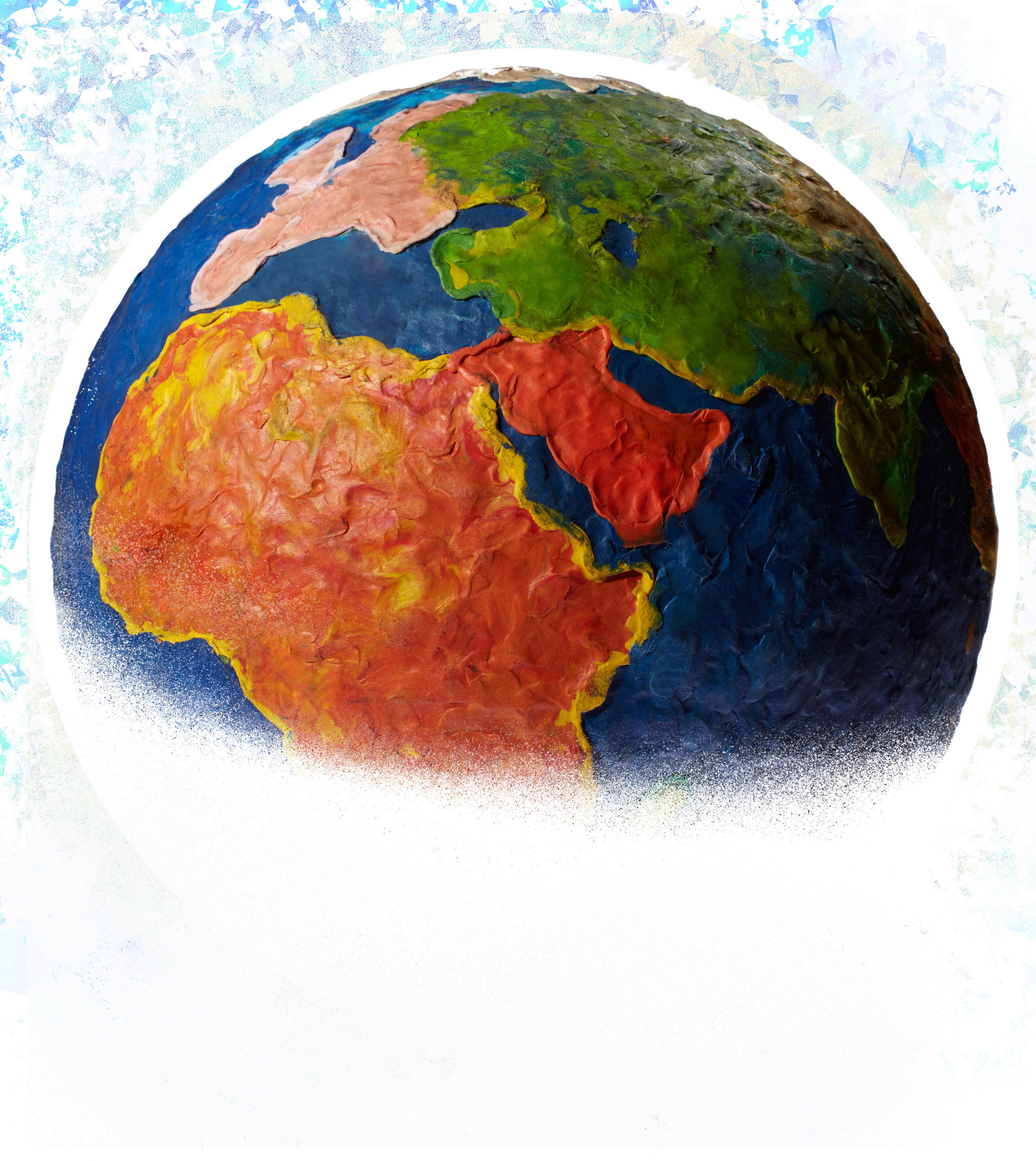 Story and Photos by Brandon Sipes
Story and Photos by Brandon Sipes
It can sometimes be hard to look out at the world today and not feel a tinge of despair. We see poverty, suffering, and injustice almost everywhere we look. Add to that the conflicts, violence, and wars that are present, and it can become overwhelming.
The continuing Russian invasion of Ukraine, the horrific attacks in Israel and its brutal response in Gaza, and the escalation of violence and war across the Africa region all remind us how easily we can create an enemy of the other. Even in the United States, often seen as a country with low levels of conflict and violence, increasing political polarization has increased American’s isolation from each other, as well as the number of people who see violence as a means to their political ends.
What should the response of the church be to these conflicts? What is the witness of the church in places of violence? When our communities experience extremism and violence, do the people there know to come to the Church of the Nazarene? Are we active in building peace in places where peace is not present? Are our churches responding to the conditions that nurture conflict? Over almost the last decade, Nazarene Compassionate Ministries has hosted dozens of training events designed to equip Nazarene leaders
08 2024 ISSUE 01

in the work of peacebuilding. These have included small workshops, targeted skill-based training of field and regional leaders, and the development of a global peacebuilding cohort that first met in 2020 in Belfast, Northern Ireland. Additionally, in Burundi, NCM supported two years of a peacebuilding initiative bringing together youth from conflicted ethnic groups who spent time learning from each other while also developing business plans ultimately funded by the project. This project, in the end, supported thousands of youth and developed 39 new businesses. In Hawaii, NCM USA also supported a restorative justice project aimed at diverting cases away from the formal justice system into a process where victims and offenders meet together with others to resolve their issues.
Most recently, in March of 2024, Nazarene Compassionate Ministries and the Africa Region of the Church of the Nazarene convened roughly thirty pastors, leaders, students, and others from the region to explore how we can commit to the work of peacebuilding on the region.
Peacebuilding is a term chosen intentionally. This term assumes two things: first, that peace is not simply an absence of conflict, and second, that we have to do hard work to accomplish peace. Imagine a husband and wife who have had a deep disagreement, leading to an argument that wasn’t fully resolved. Instead of staying within that tension and working through their disagreement, they simply move on and “bury it.” And for a time, the tension reduces and the conflict is forgotten. That is, until the next time there is a disagreement or this issue comes up again, they realize they never really were “at peace.” The relationship was still somewhat fractured.
Peacebuilding would mean then that simply because the tension was reduced and the conflict wasn’t “active,” that does not mean there was peace. And it also assumes that the husband and wife would have had to work to build their peace back. Peace is not created if the core issues leading to the conflict are not addressed.
In Kenya, participants in the peacebuilding training explored this concept through the lenses of the conflicts they are facing in their own countries. Some shared the stories of generational conflicts they experience in their congregations and wrestled with the question of how leaders can equip youth to be part of the solution and how to help current leaders be willing to pass on their roles and responsibilities in leadership. Almost every participant noted how much conflict occurs in Africa over land, sometimes about ownership and other times about whether to use it for livestock or crops. Present in the room
throughout our time together were worries about the rising religious extremism, tribal, and other forms of violence. Particularly in the Sahel region of Africa, conflict and violence are rising at a rapid rate, also creating massive displacement of people. Pastors told stories of ministering to those who live in constant fear, of serving people displaced by violence, and even stories of fellow pastors and family members who had been kidnapped and killed. It was a sobering set of conversations, and yet all who were present were fully committed to ministering in these same communities despite the danger.
For these pastors and leaders, building peace needs to include not just the move away from
“Peace is not created if the core issues leading to the conflict are not addressed.”

violence but addressing the conditions that lead to it. Their goal is not simply to reduce conflict, but to address the conditions in which conflicts thrive.
THIS MEANS CREATING INITIATIVES THAT ADDRESS:
POVERTY. Over and over again, pastors hear stories of those who resort to violence because people feel like they have no other options, no outlets, to move forward in their lives. When our churches engage in good development work, making people less vulnerable, they are less likely to be coerced into conflict and violence.
Peacebuilding in Burundi includes income-generating projects that allow community members to work together. These projects have continued to grow and expand even after the initial program ended.

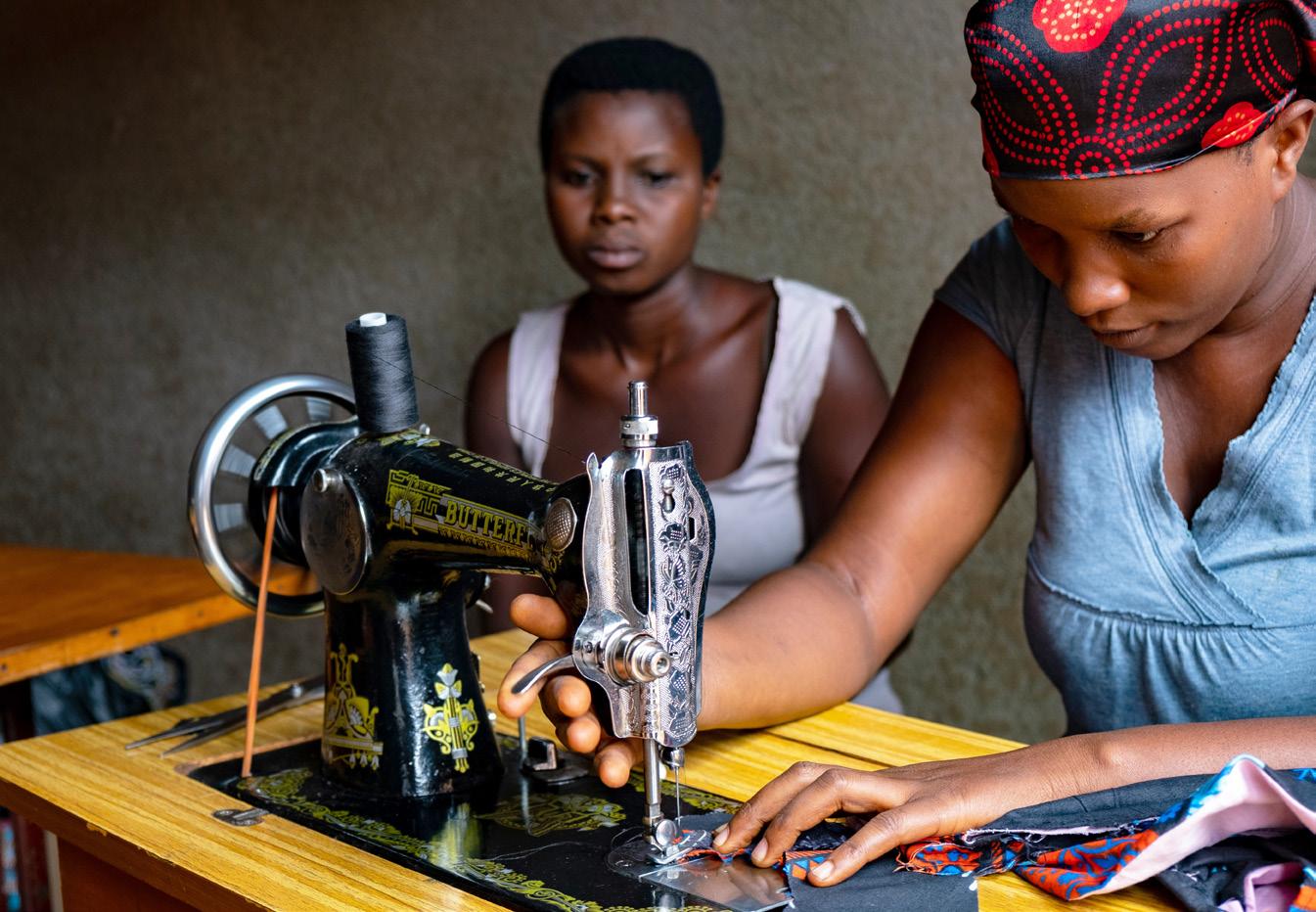

For he himself is our peace, who has made the two groups one and has destroyed the barrier, the dividing wall of hostility, by setting aside in his flesh the law with its commands and regulations. His purpose was to create in himself one new humanity out of the two, thus making peace, 16and in one body to reconcile both of them to God through the cross, by which he put to death their hostility. He came and preached peace to you who were far away and peace to those who were near. For through him, we both have access to the Father by one Spirit.
Ephesians 2:14-15
VULNERABILITY. Poverty makes us vulnerable to disasters, to political and economic instability, and to conflict and violence. But it’s not the only thing that makes us vulnerable to being drawn into conflicts. If we are medically fragile or have disabilities, or if we are children, or are displaced from our home, or are isolated from community, or if we are simply women… all of these things make us vulnerable and therefore more likely to see conflict and violence as a way to escape.
POLARIZATION AND DEHUMANIZATION.
If we have an enemy, it has likely started with a process where we have seen ourselves as very different from and likely much better than another person or group. Once we’ve done that, it becomes much easier to see them as less than human, and then violence becomes acceptable.
POLITICAL INSTABILITY AND THE LACK OF GOOD GOVERNANCE.

These issues create conflicts on every region that the Church of the Nazarene is present in. Our churches can encourage their communities to insist on just and equitable practices within their countries, particularly as it relates to the democratic processes.
Leadership across the Church of the Nazarene on the Africa Region are announcing what God is doing in the world by committing to communities where conflict and violence are often present, despite the risks they face. They are coming alongside God’s vision for the redemption of the world through Shalom and, therefore, being witnesses to those who are suffering violence. This is true too of our Nazarenes in Ukraine, in Israel and Gaza, in
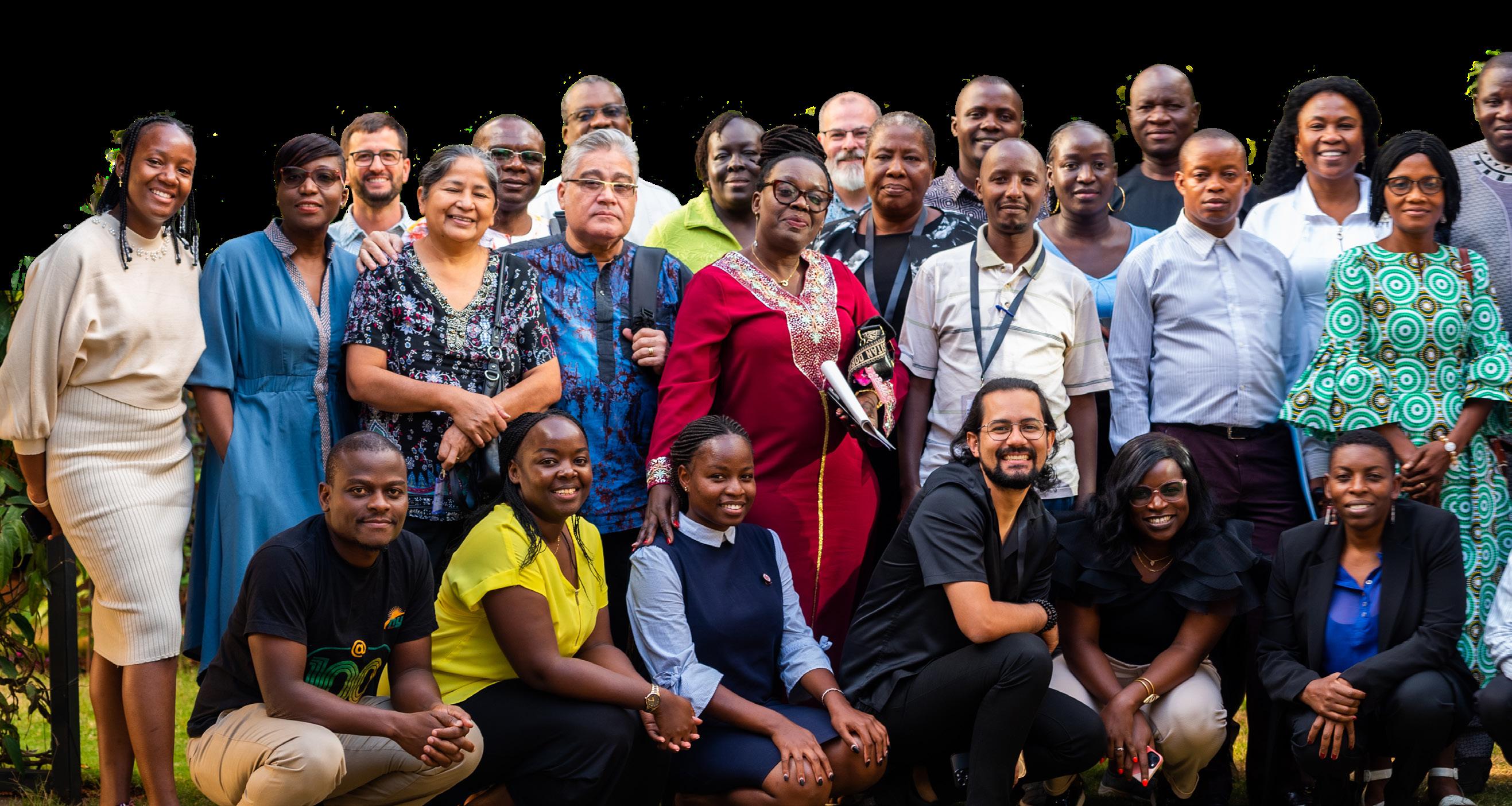 In March, a group from the Africa Region gathered to study and brainstorm peacebuilding practices for their own communities.
In March, a group from the Africa Region gathered to study and brainstorm peacebuilding practices for their own communities.
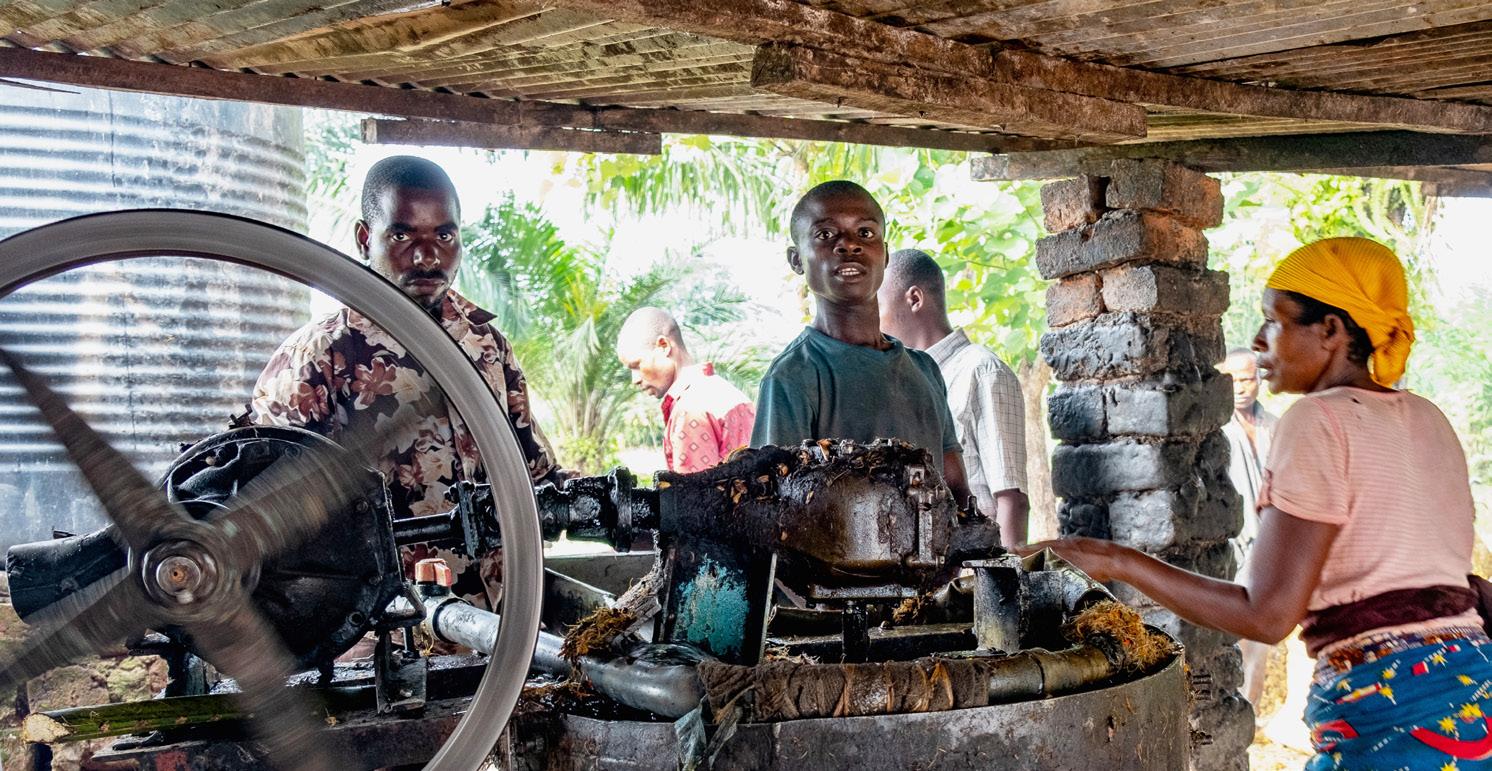
“They are coming alongside God’s vision for the redemption of the world through Shalom and, therefore, being witnesses to those who are suffering violence.”
Myanmar, in Haiti, the Democratic Republic of Congo and elsewhere.
Can we pray for our churches in these areas? In addition to the conflicts we all face in our churches, they also are wrestling with what it looks like to minister in situations where they could be kidnapped or killed for their ministry. We have ministers globally who face this on a daily basis. And yet, they wake in
the morning, pray for their families and communities, and walk to their church to prepare for a day where they desperately want peace.
Let us commit to supporting them in their efforts.

RECONCILING ALL THINGS
By Chris Rice and Emmanuel Katongole
LIVING TOWARD A VISION by
Walter Brueggemann
THE LANGUAGE OF SHALOM: 7 Keys to Practical Reconciliation by Cheryl
Miller
MIRROR TO THE CHURCH: Resurrecting Faith After Genocide in Rwanda by Emmanuel Katongole for becoming a Peacemaker
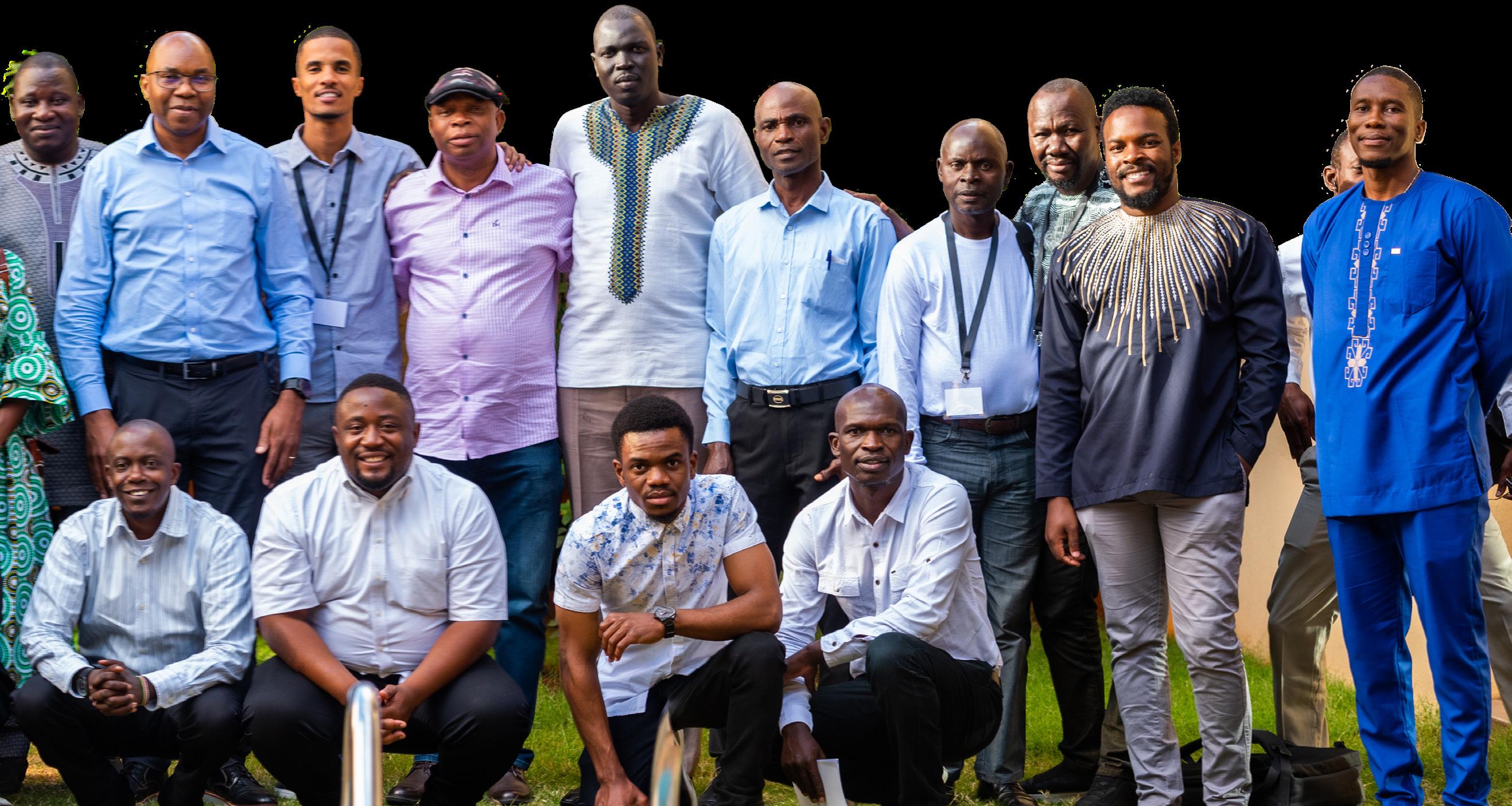
READING Recommended

BREAKING THE SILENCE
Empowering Women Through Menstrual Health Initiatives in Rural India
By Sharon Tigga
Photos provided by the Eurasia Region
In the heart of Odisha, nestled amidst verdant hills and flowing streams, lies the picturesque village of Kandhamal. Yet, beneath the tranquil facade of this idyllic setting lies a silent struggle that has plagued its women for generations: the taboo surrounding menstruation.
In Kandhamal, as is in many communities around the world, menstruation is veiled in secrecy and stigma. Cultural and religious norms dictate that menstruating women and girls must be kept at arm’s length to avoid contaminating others with their supposed impurity. This casts a dark shadow over the lives of women, perpetuating shame, silence, and neglect.
This lack of open discussion and understanding has led to a myriad of challenges for women in Kandhamal, from a lack of access to menstrual hygiene products to limited education about their reproductive health.
But amidst the silence, there are whispers of change. Through grassroots initiatives and community-led efforts, the WASH (Water, Sanitation, and Hygiene) project in Kandhamal led by Nazarene Compassionate Ministries in India, has been working to destigmatize menstruation and ensure that women’s needs are no longer overlooked or neglected.
“Since menstruation has been considered a social taboo for so long, no one wanted to talk about it,” said Pratik Zombade, the project coordinator in Kandhamal. “And so, [through] WASH [we have] been trying to address issues surrounding menstruation with care and love.”
Through the WASH initiative, NCM India confronts menstrual health challenges innovatively. By rallying the support of local government health workers, the local church and WASH staff have gained access and acceptance within local communities. This collaborative effort has led to a series of awareness programs, where local women are not only educated but also trained to spread knowledge amongst their peers, embarking on a transformative journey aimed at empowering local women and dismantling deep-seated societal taboos.
As the church unveils the layers of misinformation and stigma surrounding menstruation, it illuminates pathways to liberation
12 2024 ISSUE 01
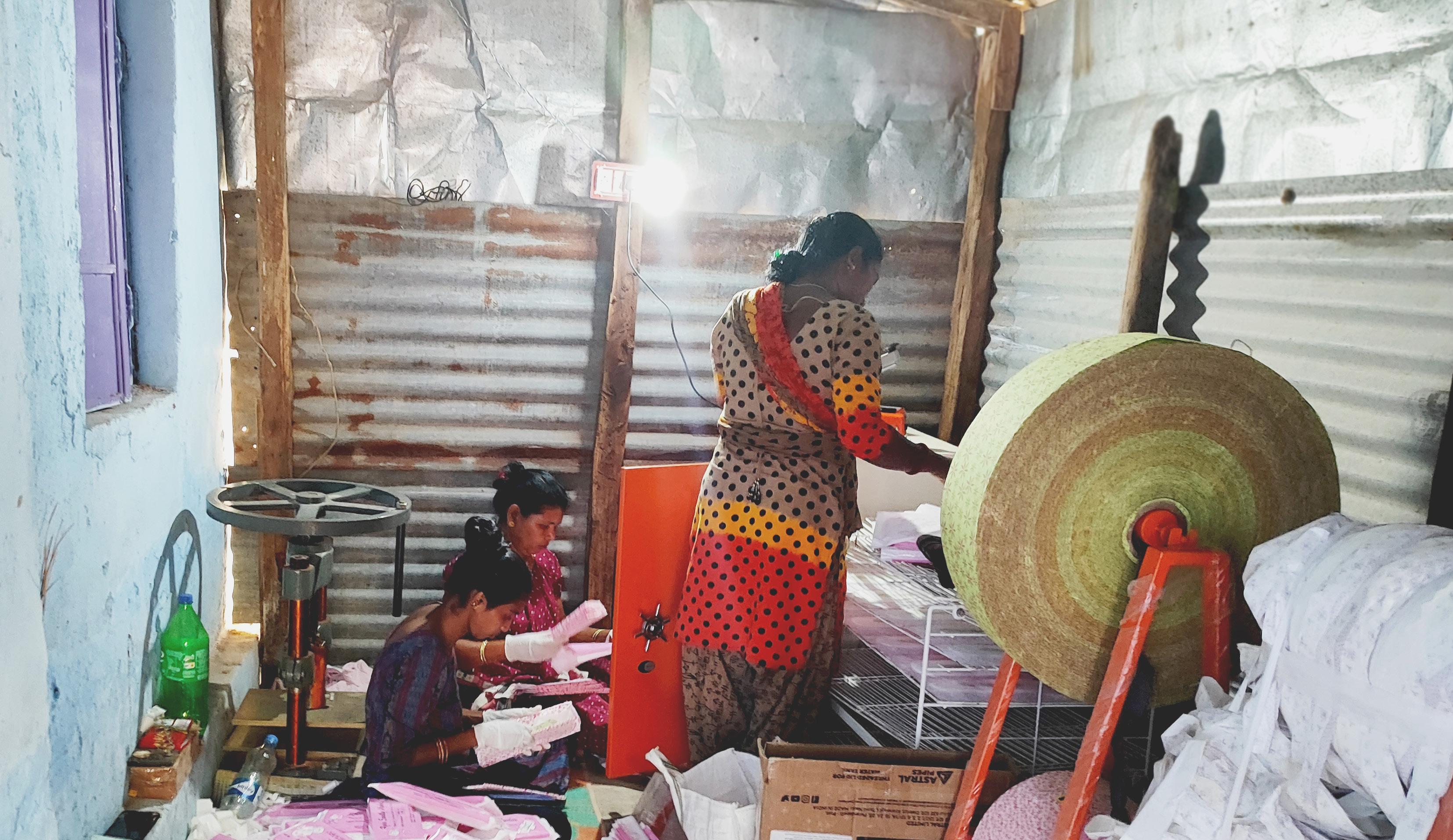
and understanding, challenging age-old norms.
Yet, as the endeavor delved into the fabric of local realities, an unforeseen challenge emerged like a hidden knot in the weave. Despite strides in awareness, the scarcity of high-quality sanitary napkins cast a shadow over the aspirations of the community. Recognizing the pressing need, the local church took an important step by investing in equipment to produce safe and effective sanitary napkins locally.
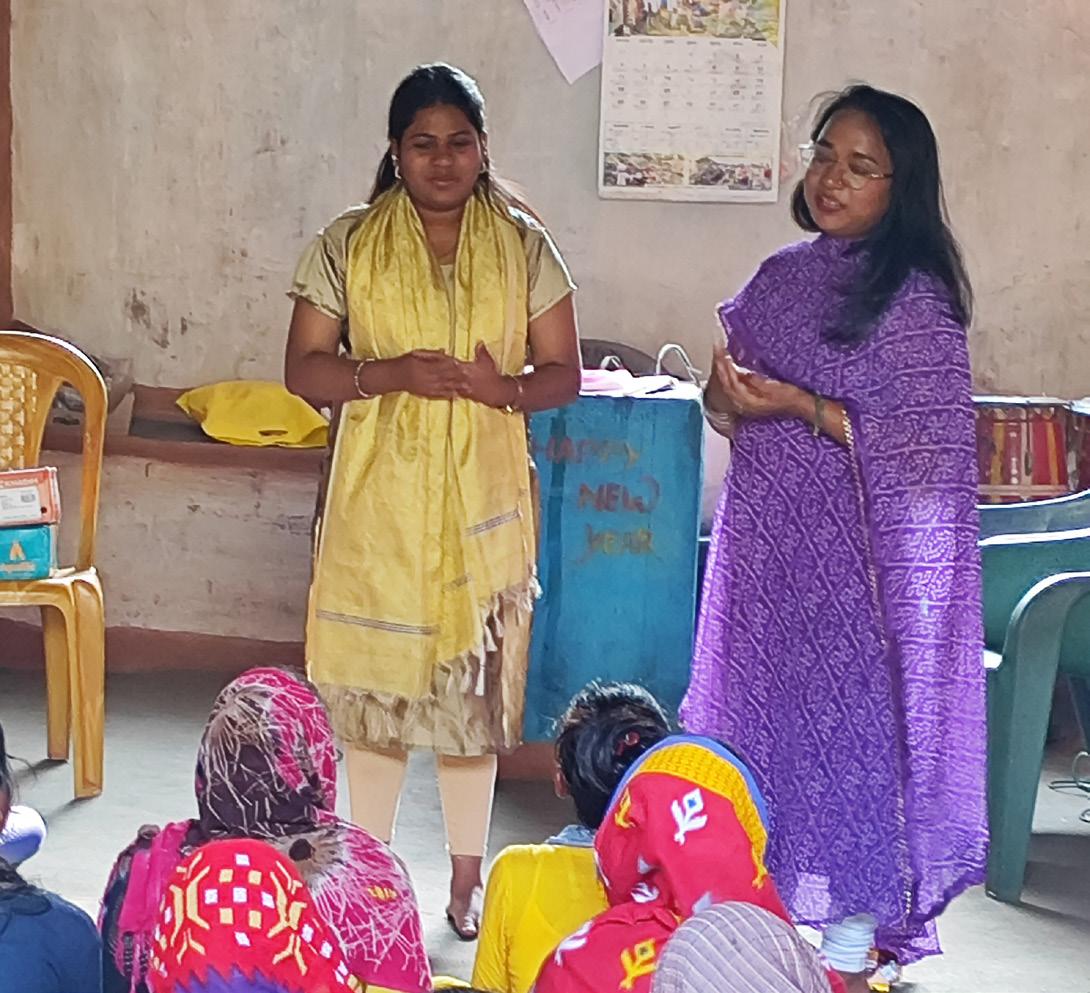
A new chapter unfurled as the rhythmic hum of machinery resonated through the air, breathing life into dreams long deferred. This new aspect of the project extended beyond mere production; it served as a means of economic empowerment, providing employment opportunities to women from the community through self-help groups.
This project not only fostered financial independence but also instilled a profound sense of pride and ownership in the products crafted by the women involved.
“The Odisha WASH project entrusted our group to produce sanitary napkins for women in our community who have long suffered due to the absence of proper menstrual hygiene products,” explained Sushmita, a member of one of the self-help groups. “With each pad we produce, we not only earn a modest wage but also secure a lifeline for our families. This opportunity has allowed me to support my children’s education and fulfill essential household needs, empowering me to sustain my family with dignity.”
For Sushmita and so many others, this project goes beyond providing a paycheck; it has changed the way they view themselves and the women around them.
“This initiative isn’t just about economic support; it’s about empowerment. It has provided a platform for housewives like me to work and earn, elevating our roles beyond the confines of our homes,” she said.
NCM MAGAZINE / NCM.ORG 13
One of the biggest challenges to menstrual health is access to needed supplies. This project is empowering women by generating income, educating them, and increasing access to muchneeded supplies for women.
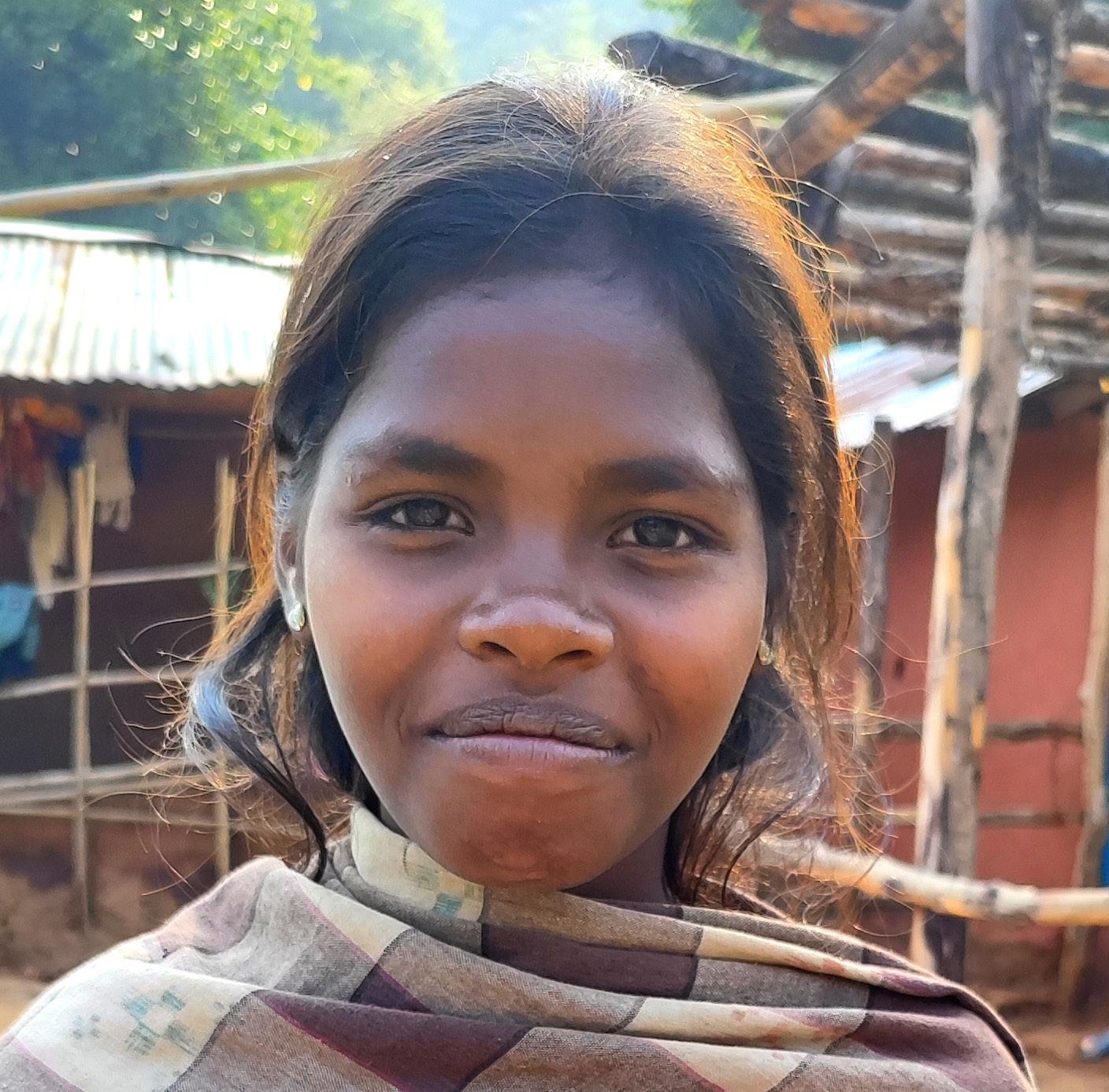
The work of creating products that will not only allow Sushmita to provide for her family, but also give access to menstrual products to so many women in need, has sparked a new passion in her.
“As I stitch each pad, I’m reminded of the critical importance of menstrual hygiene, a lesson I’m passionate about sharing with others. Through raising awareness about the use of sanitary pads, I’m not just making a product; I’m advocating for women’s health and dignity.”
Pratik has developed a fervent desire to witness the flourishing of the small-scale
business initiated within the Rosemary Self-Help Group. He envisions a future where opportunity and empowerment know no bounds.
“Kandhamal currently hosts just one sanitary production company,” Pratik explains, his eyes alight with possibility. “But what if we could nurture its expansion, igniting a ripple effect of empowerment and inspiration across our community? I dare to dream that the Rose Sanitary Napkin, born from our modest efforts, could one day thrive in diverse locales, touching lives far beyond our immediate reach. Imagine the pride we would feel, knowing that our small endeavor has blossomed into something truly impactful, leaving an indelible mark.”
With every carefully crafted sanitary napkin, a powerful symbol of resilience and creativity emerges. Women from Kandhamal, once confined by their circumstances, now proudly stand as artisans shaping their destinies. Where their hands were once limited, they now weave threads of prosperity and hope, creating not just menstrual pads but pathways to dignity and self-reliance.
The women participating in this project are not simply workers; they are the driving force behind a movement that challenges the stigma surrounding menstrual health and advocates fiercely for women’s rights. Through their dedication and determination, they are rewriting the narrative of empowerment and transforming their communities for the better.
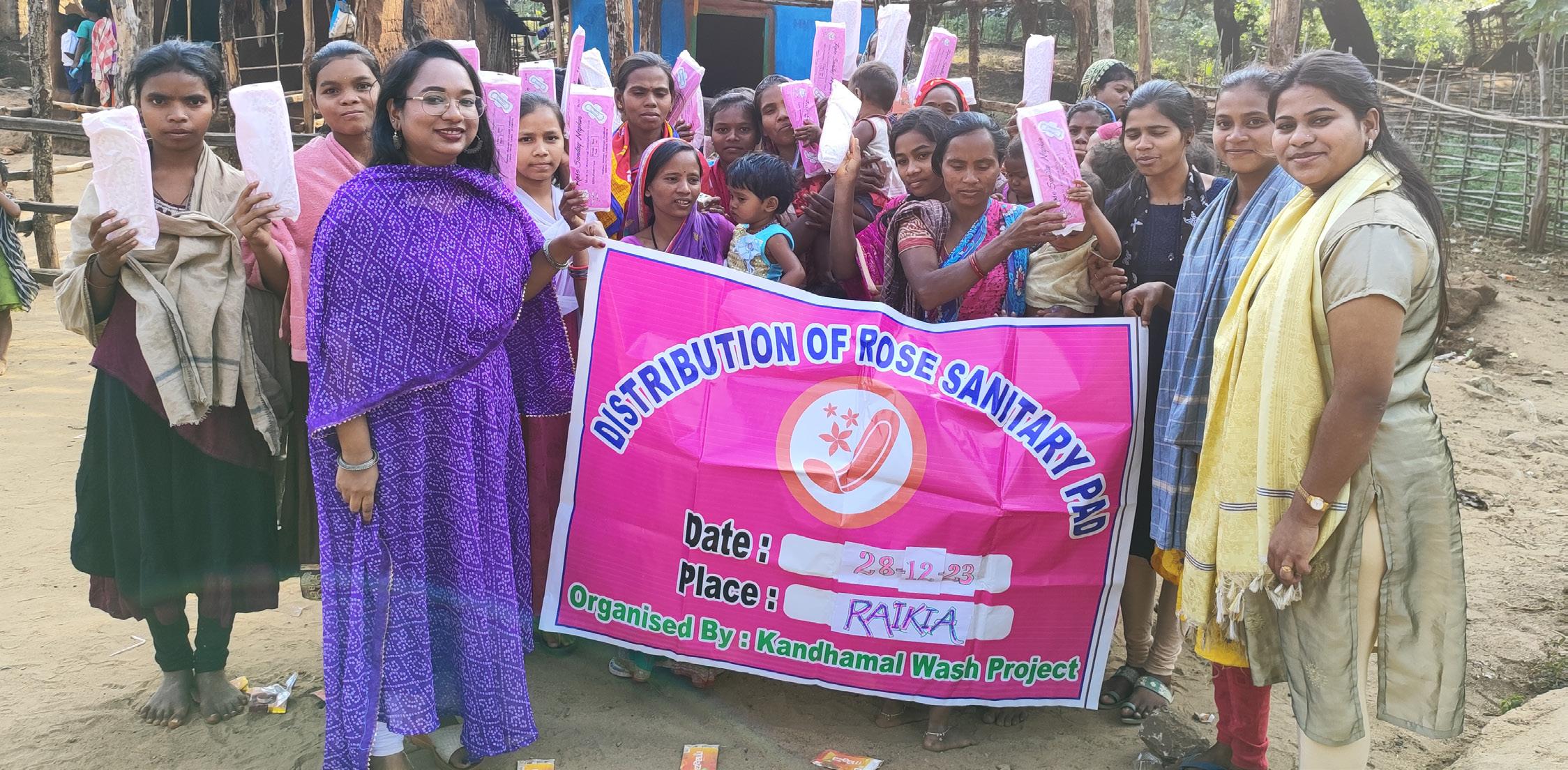
14 2024 ISSUE 01
India

India is a country on the continent of Asia. It forms a peninsula surrounded by the Bay of Bengal, the Arabian Sea, and the Indian Ocean. The world’s highest mountain range, the Himalayas, is located in the northern part of the country. India is a diverse country with breathtakingly beautiful nature and wildlife and a rich cultural history.
India is home to about 65,000 different kinds of wildlife, including elephants, pythons, rhinos, and the elusive snow leopard.
The official languages in India are Hindi, English, and 21 more.
The Taj Mahal, one of India’s most recognizable sites, was built in the 1600s and was designated a UNESCO World Heritage site in 1983.
NCM in India leads child development projects, WASH projects, disaster response, and more.


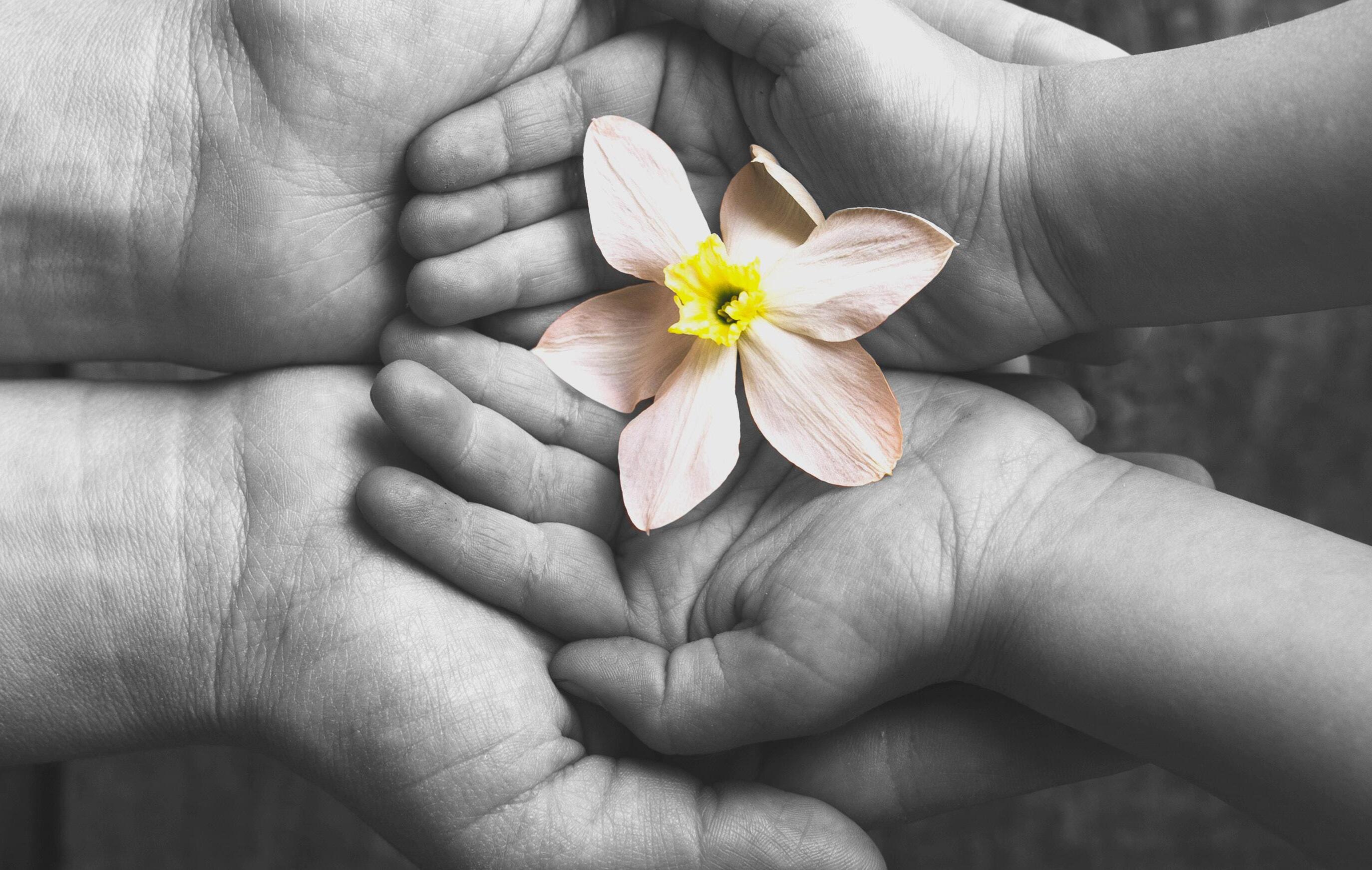
CELEBRATE THE WORK OF GOD THROUGH THE LOCAL CHURCH of TODAY ! Or visit: ncm.org/share-your-story Look out for stories of compassion on our blog! ncm.org/blog Your StoriesCompassion Share SCANHERE TO SHARE
around the world

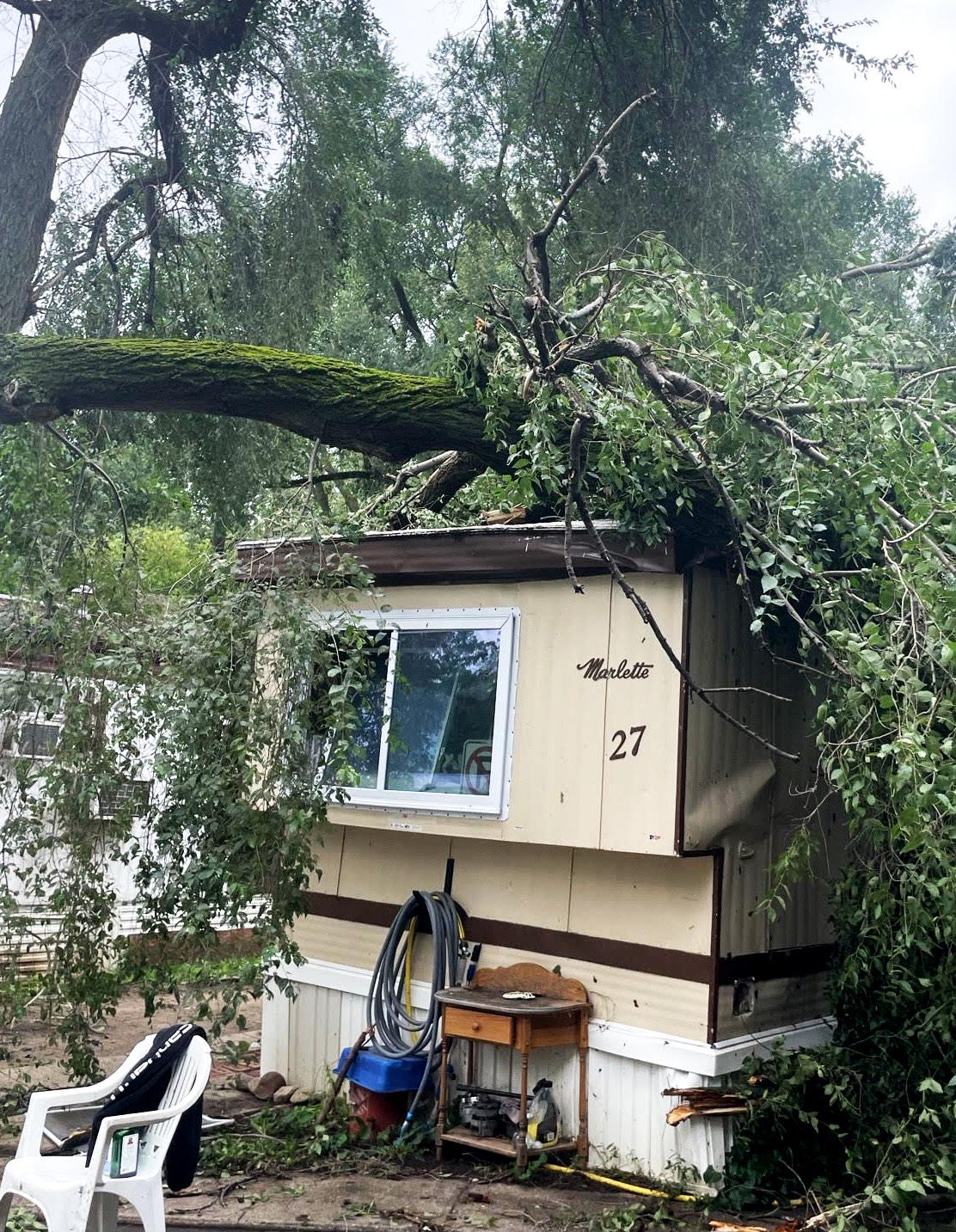
Connections Community
How long-term relationships prepared a church for disaster response
By Allie Degner | Photos provided by Marlene Webster
On the south side of the city of Owosso, Michigan, many people call Pleasant Valley Mobile Home Park home. Owosso is the largest city in Shiawassee County, located between the Michigan capital, Lansing, and the city of Flint, and is also the city where the nonprofit organization Shiawassee Hope resides. Shiawassee Hope was established in 2012 when a group of Nazarenes felt called to plant Owosso City Church of the Nazarene. Marlene Webster, a children’s pastor of 13 years, spearheaded the effort after noticing that a church could meet the needs of Pleasant Valley and bring transformation to the community. With this new church plant came the creation of Shiawassee Hope in order to provide resources that can lead to a higher quality of life for citizens of Shiawassee County.
“One of the main goals of Shiawassee Hope is to have creative solutions for alleviating impoverished conditions that don’t take away people’s dignity,” said Webster.
With this in mind, Webster and other church members decided to purchase a trailer in the mobile home park to serve as their outreach center.
Officially named the Impact Center, this trailer began to serve as the hub of their community activities. The Impact Center hosts a reading club, art club, and back-to-school parties for elementary students of the mobile home park.
Holiday-themed activities are also held at the Impact Center, including an annual Christmas store where parents pay $10 to pick out toys, games, pajamas, socks, and underwear for each of their kids. With the help of community leaders, $12,000 was raised in one week to provide items for the most recent Christmas store.
One of the most crucial ways that volunteers connect with the mobile home community members is through Table Tuesdays, where the volunteers of Shiawassee Hope make 40 meals every Tuesday night for the residents.
According to Webster, around 12-14 people receive food at a time in the Impact Center on these Tuesday nights. Becoming a reliable and committed presence in Pleasant Valley has allowed for relationships between community members and volunteers to flourish, especially through weekly events such as Table Tuesdays.
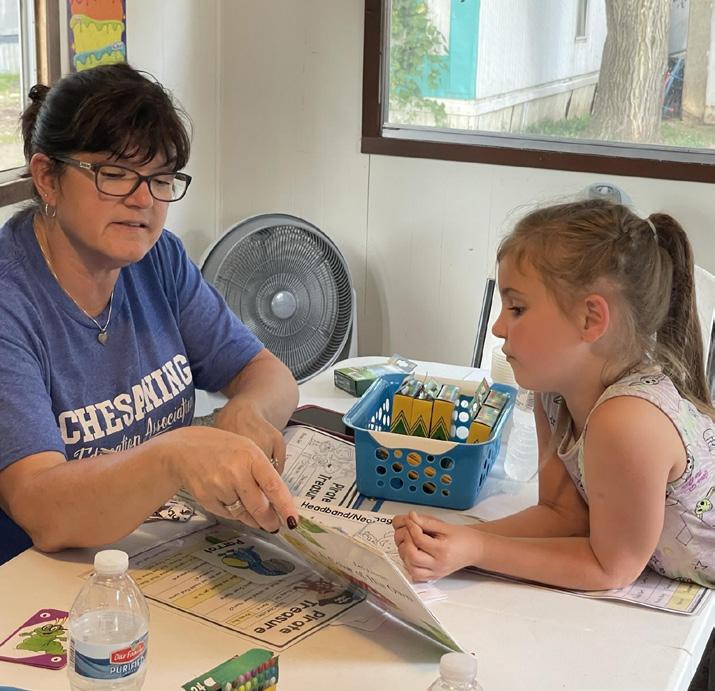
Shiawassee Hope also helped Webster get connected with Alex Fisher, a young woman raised in Pleasant Valley with a tough home life. After Webster noticed Alex’s mom riding her bike to and from work, a round trip of eight miles, Webster began offering her mom rides to work while also getting to know Alex and inviting her to church.
“I had no links to positivity before Shiawassee Hope brought [those]connections to my life that I never would have had without it, and it gave me healthy relationships with other people,” says Fisher. “The people in Shiawassee Hope are my family.”
In August of 2023, disaster struck Pleasant Valley. Intense storms — including tornados — tore through the community, tearing off roofs and breaking the windows of the mobile homes. Large, unmaintained trees throughout the property dropped branches on homes, making one of the homes completely unlivable and leaving the rest in a drastic state of disrepair. Most of the underserved members of Pleasant Valley had little to no emergency savings and no other options for housing. Thankfully, Shiawassee Hope was able to petition for grants on behalf of the members of Pleasant Valley in order to help make their living spaces livable once again.
Because of Shiawassee Hope’s nonprofit status, its only funding comes from grants and fundraising. After hearing of the tragedy at Pleasant Valley, Nazarene Compassionate Ministries provided a grant for Shiawassee Hope that would allow for the alleviation of some of the burdens on the community members.
“Almost all the grant money from NCM went towards the repair process, which helped provide construction supplies to fix up some of the mobile homes,” says Stacie Oceansek, a Shiawassee Hope board member.
This included countless trips to Home Depot for supplies to fix roofs, floors, and windows. The funds
community members were brought together in more thoughtful ways, allowing Shiawassee Hope to provide extra support for the Pleasant Valley residents. In some cases, it can be difficult to secure government assistance, but Shiawassee Hope is able to work locally to fill in the gaps. They continue to work with other community organizations to help Pleasant Valley members pay utility bills and rent while also providing gift cards or groceries for families when needed. Webster’s vision to pioneer Shiawassee Hope in conjunction with Owosso City Church has
“I had no links to positivity before Shiawassee Hope brought [those]connections to my life that I never would have had without it.”
created a vibrant community of people who have overcome a dreadful disaster together and are stronger because of it.
Shiawassee Hope’s resilience serves as an inspiration to communities and proves that sometimes those who need help the most are closer than we think.



 Community members didn’t hesitate to jump into action when their neighbors needed it most.
Community members didn’t hesitate to jump into action when their neighbors needed it most.

The devastating wildfires on the island of Maui burned more than 2,500 acres across historic towns, destroying homes, businesses, and wildlife in the area. A total of 97 people lost their lives.
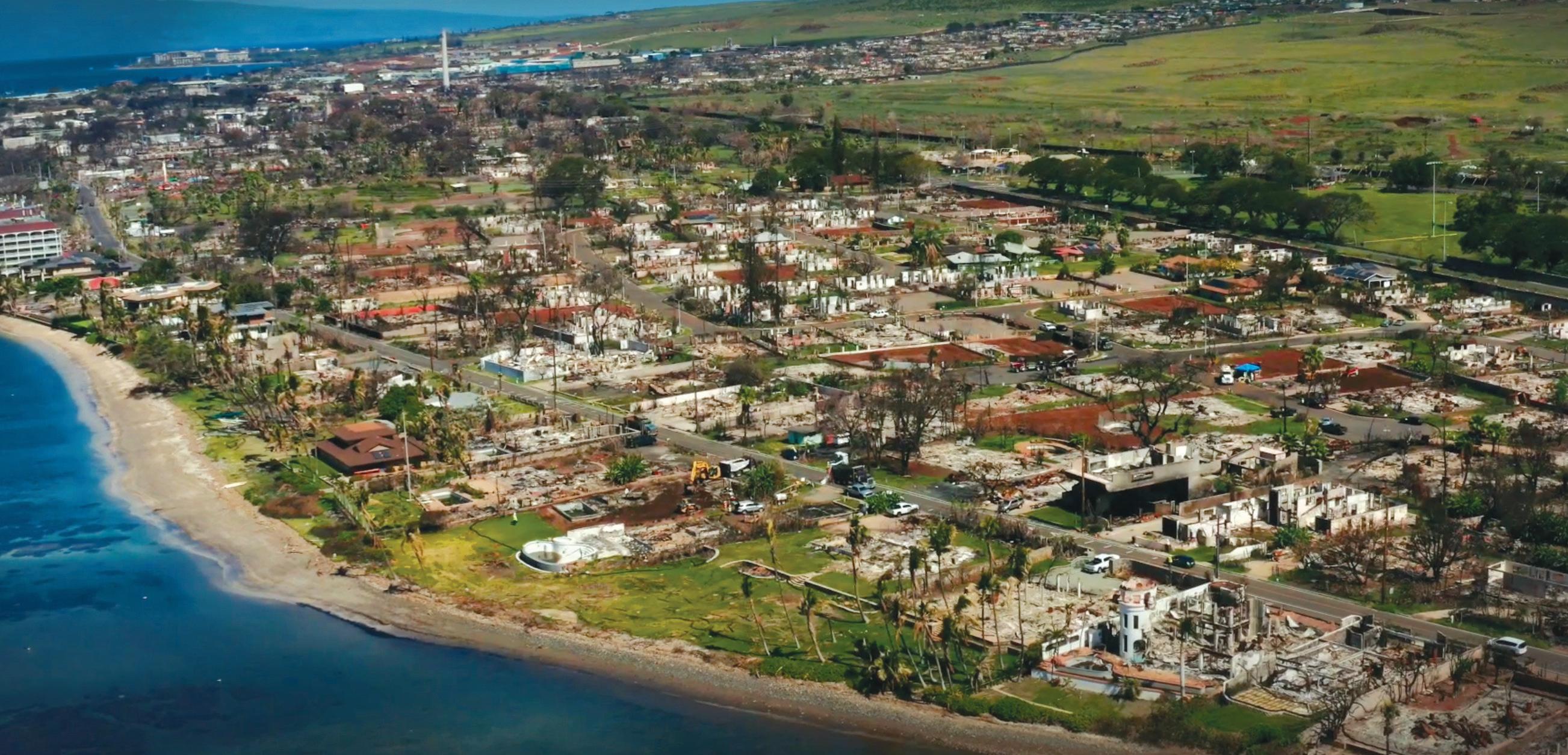
Love Has No Bounds
One Church’s Response to Catastrophic Fires in Maui Leads to Long-term Transformation
Jon Morton
provided by

IN AUGUST OF 2023, wildfires broke out on Maui, one of the islands that make up the state of Hawaii. The fires spread rapidly and were one of the most destructive and deadly wildfire events in the United States in over a century. Two local Nazarene churches responded to the overwhelming need by providing temporary housing, helping neighbors replace essential items such as bicycles, beds, furniture, and more, and distributing food, water, and baby supplies.
When emergencies like these fires arise, local churches are perfectly situated to offer immediate relief. Both before and after any crisis, local churches remain a permanent fixture in the community, which means the short-term relief a congregation provides can easily transform into long-term community development and rebuilding.
The wildfires spread quickly due to the high winds of Hurricane Dora as it passed close to the state, clocking between 60-80 miles per hour. A drought at the time meant that vegetation on the island was rapidly consumed.
More than 4,000 housing units burned to the ground, worsening an already-existing housing crisis. It is estimated that more than 3,000 people are still without permanent housing.
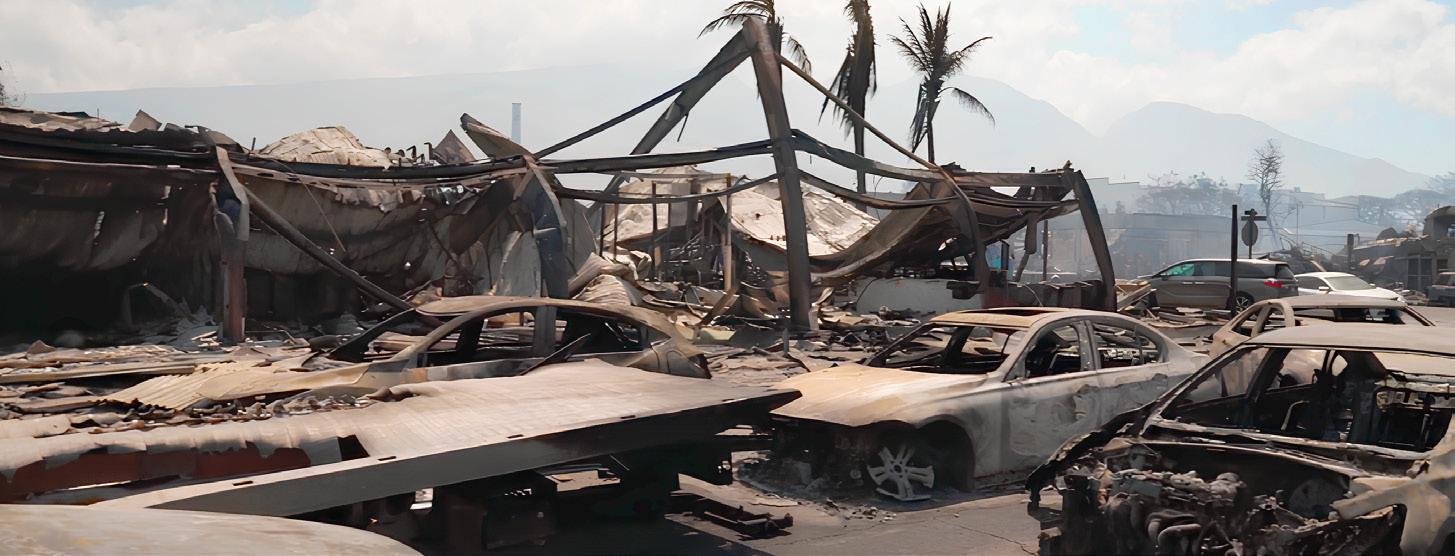 Images
Images
2 024
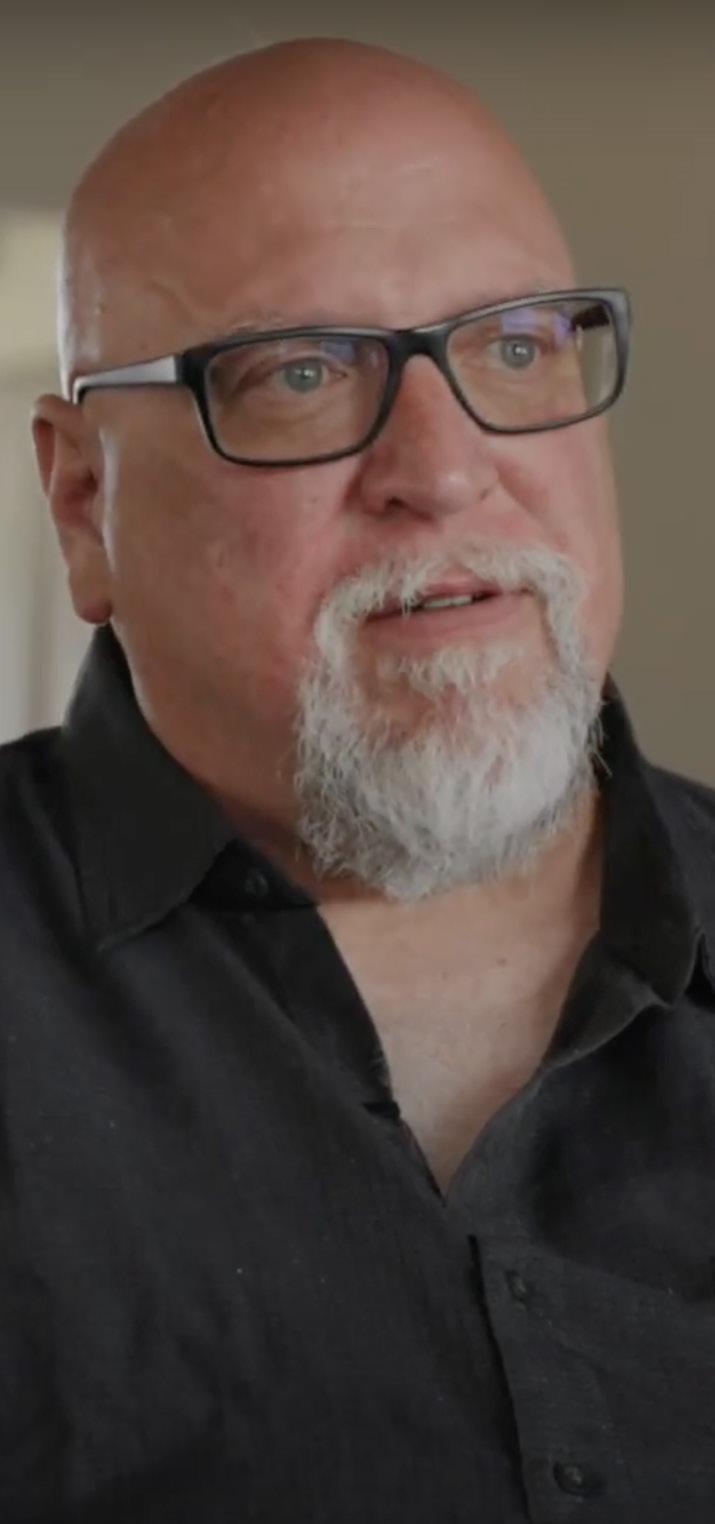
Pastor Dylan Nails is the Executive Director of the Puka Naz Relief Center.
“Puka Naz is an unconventional church. It is small but mighty,” said Dylan. “We are inspired by the beginnings of the Nazarene church. There are a lot of broken people in this world, and so we just try to fill that need.”

For the Maui community, August 9, 2023, was just a normal Tuesday —until the winds started shifting. “There was a lot of worry, a lot of confusion, a lot of anxiety. We just kept getting reports of how terrible [the wind] was, how devastating, how many human lives . . . how much loss there was . . . it was pretty overwhelming,” explained Pastor Mark Gudmunson, Lead Pastor of Pukalani Church of the Nazarene (Puka Naz).


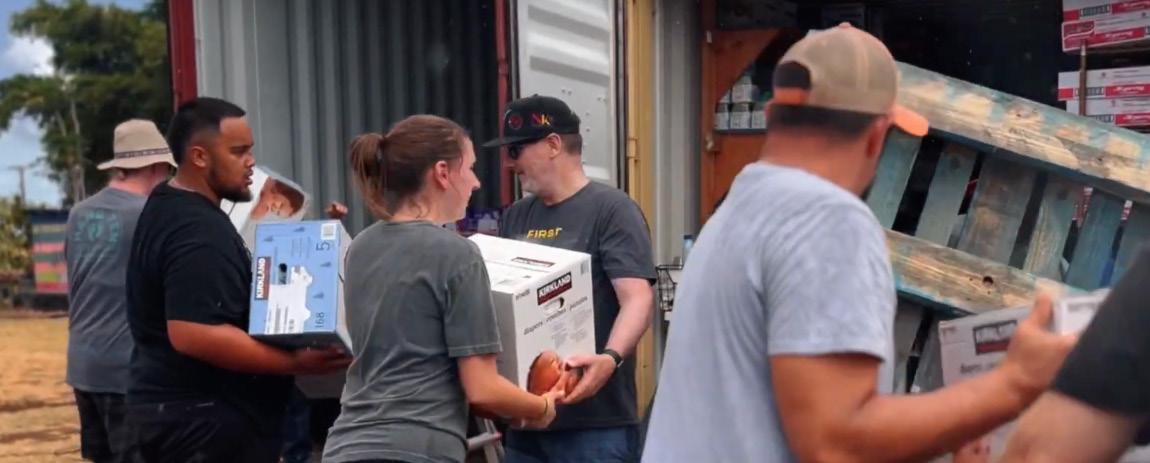
Pukalani Church of the Nazarene responded to this disaster by serving over 2,000 people through initial relief efforts.

NCM MAGAZINE / NCM.ORG 19
Pukalani means “Opening of Heaven.”


Sections of the island are still experiencing water shortages. Since the fire recovery began in August of 2023, roughly 100 gallons of fresh water per day have been distributed from the church. A solar-powered machine creates a sustainable water source by pulling moisture from the humid air, providing fresh water.
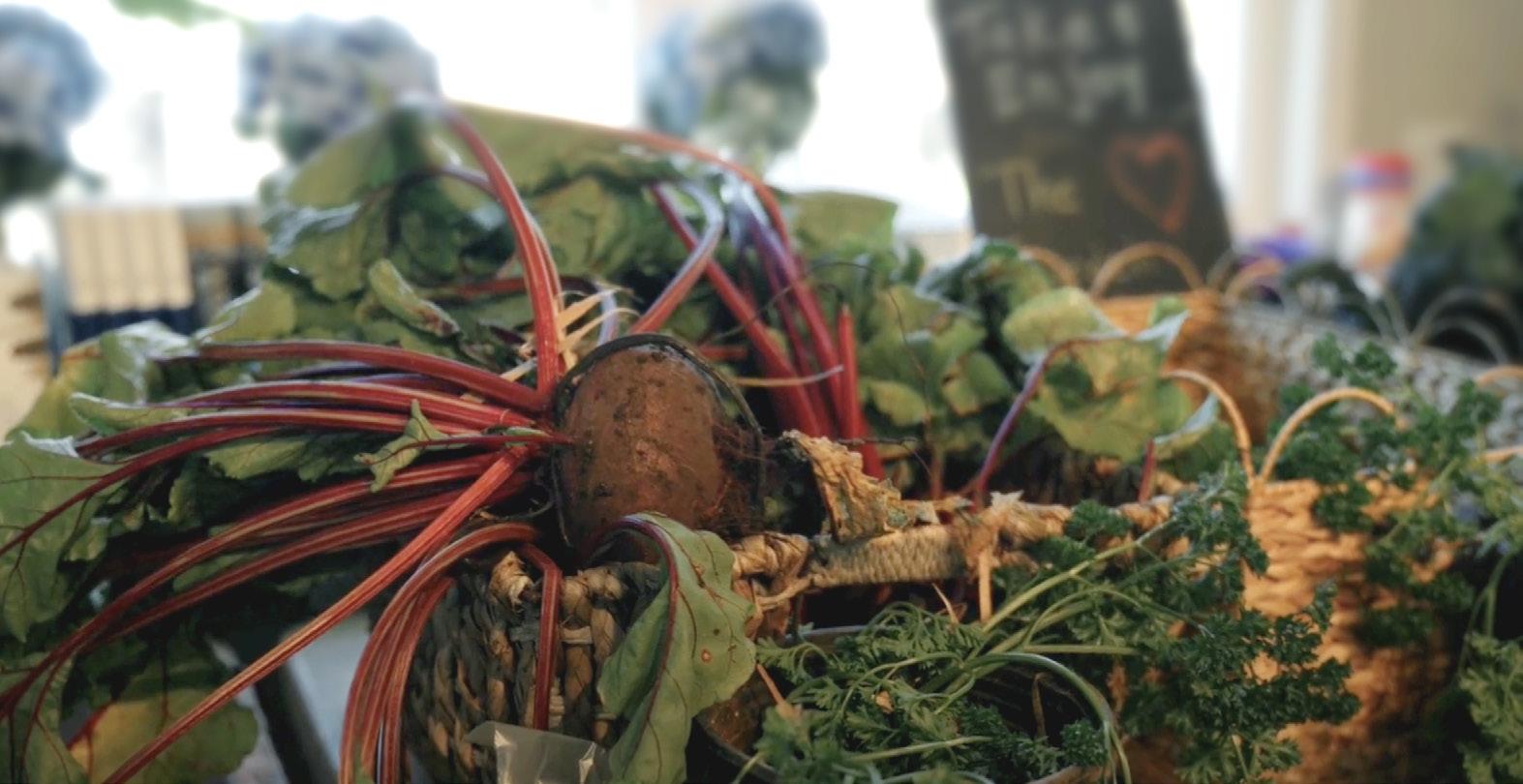

More than 60,000 pounds of fresh produce, toiletries, boots, bedding, air mattresses, and other items were distributed. “Every Saturday, we would have hundreds of cars lined up,” said Emma Nails, Director of Youth and KeiKi Ministries.
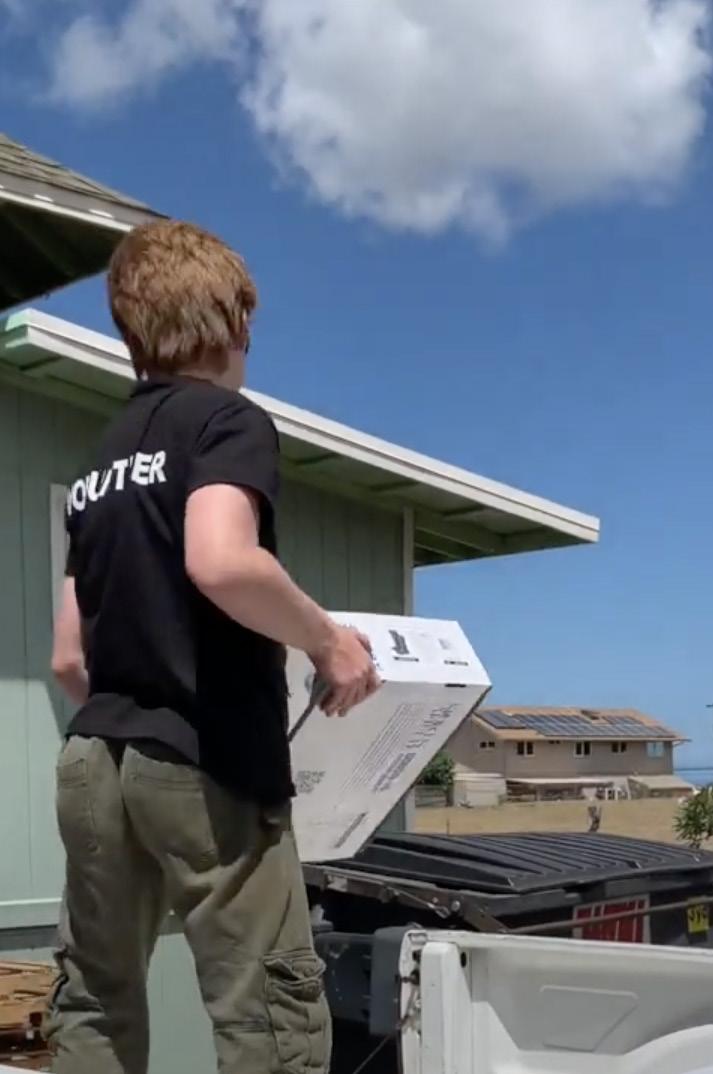
“Every day, we would spend between $10,000 and $15,000 USD,” explained Pastor Mark Gudmunson. This was possible through partnerships with NCM, other disaster relief organizations, and generous donations from people locally and all over the world.
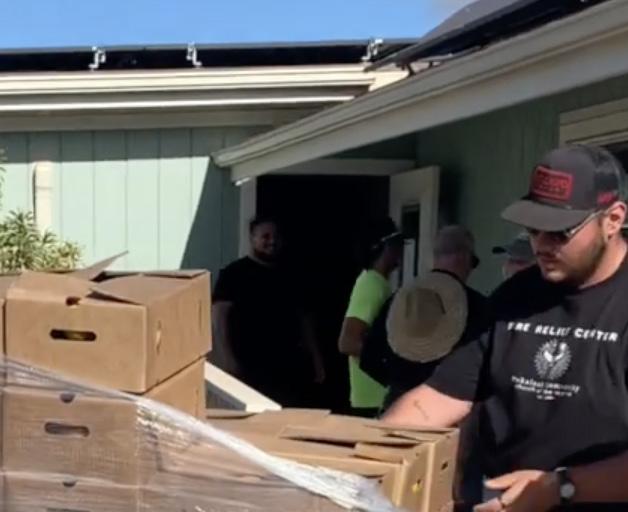

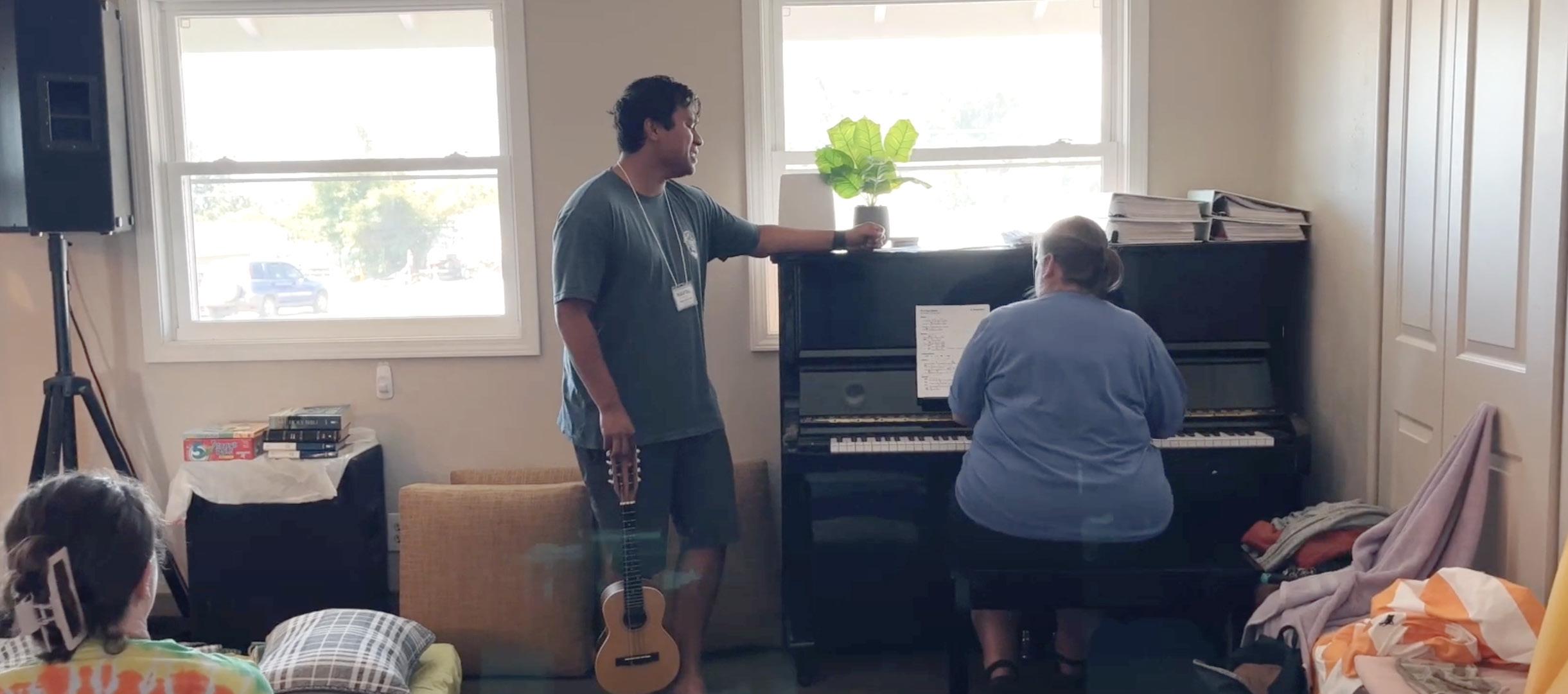
Beyond the need for basic items like food, water, and toiletries, it quickly became apparent that on an island with an already-existing housing shortage, people impacted by the fires were going to need a place to stay.
“Dylan called me and said the community center is full; they don’t have beds. I am bringing people to stay at the church,” said Emma. “I remember grabbing blankets and pillows to share with those sheltering . . . Fifteen people were sheltered at the church the first night, and our center was full for a long time . . . We are trying to love [our neighbors]. I believe that love has no bounds and it’s active. And we do our best to try to put that to practice,” said Emma.
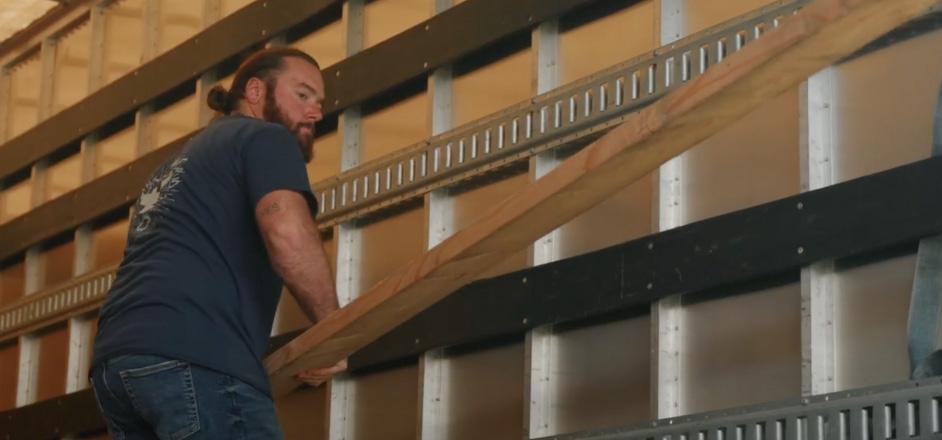
“We have never done anything like this. We have seen disasters, and we have a hurricane season, but nothing to this degree, of course. We had to figure things out as we go. This is what you’re good at . . . this is kind of what you’re already doing in the church, so why don’t you apply it to this . . . new thing and do it well? We really tried to split up jobs so none of us would get overwhelmed," said Dylan
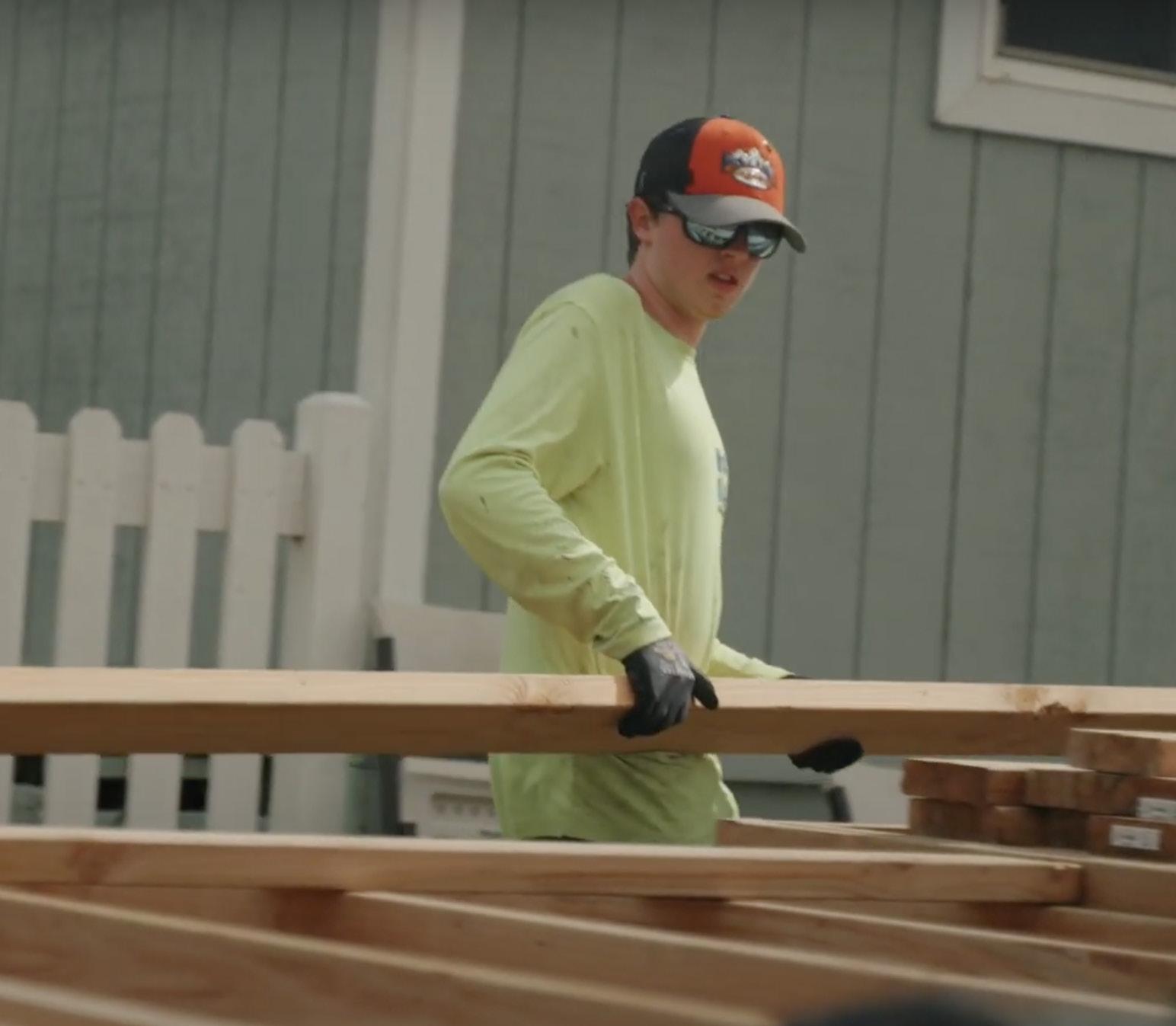
NCM MAGAZINE / NCM.ORG 21
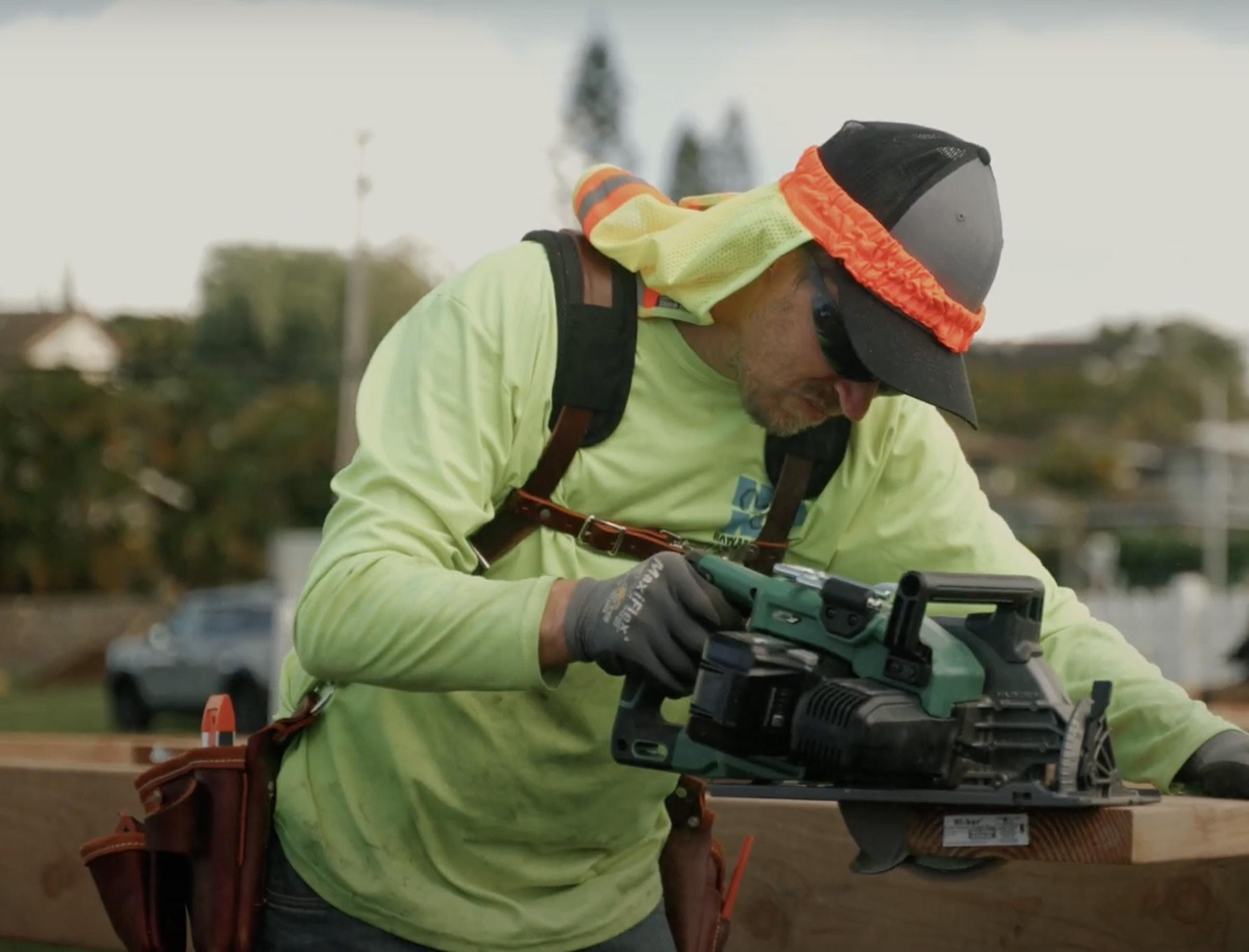

Though the fires were extinguished months ago, the long-term impacts of the disaster are still felt by the people who call this community home. Pukalani Church of the Nazarene is dedicated to walking alongside their neighbors through the rebuilding process.
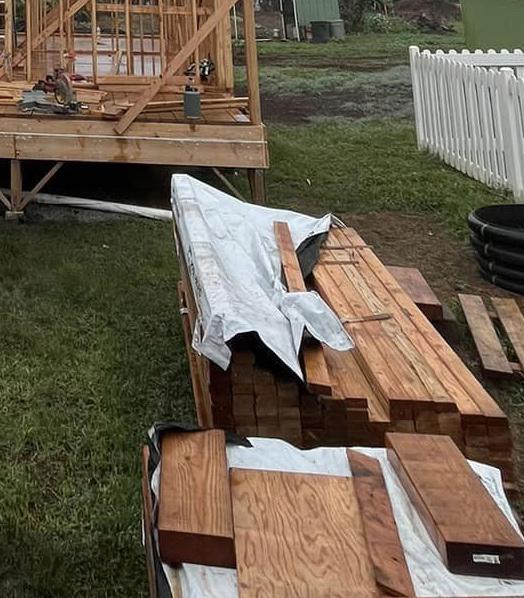


“Long-term [recovery] should be at the forefront of our minds,” said Dylan. “A lot of [disaster response] organizations rushed in head first, and that’s great. But now, as it’s coming out of the news, they’re pulling back. We live here. We aren’t going anywhere . . . We are committed to be part of the long-term solution.”
“The need is still great. It just looks different. So, that’s how we approach it. That’s how we think about it,” said Pastor Gudmunson.

The Pukalani church community continues to meet needs that were caused or amplified by the fires. The congregation hasn’t stopped distributing food and water, delivering aid, or providing spiritual care and counseling. Now, as they look to the future, church members are stepping into a new avenue of compassionate care.
As housing developers purchase land in the area, they are pricing it far too high for the local population to afford. To face this significant challenge, church leadership and pastoral staff developed a plan to build transitional housing on their church property. This will provide a sustainable and empowering way for neighbors to resettle into their own community.
This housing program will include wrap-around services to come alongside families who lost everything, helping them rebuild and thrive.
“I want people to know that there is still a lot of need here,” said Emma. “And I want them to know that they can get involved right where they are to help out.”
Pukalani Church of the Nazarene is a trusted community partner on Maui, and both pastors and lay members alike intend to continue serving on the island with Christ’s love, a beacon of hope helping neighbors envision a future marked by healing and restoration.
If you or your church are interested in partnering with Pukalani Church of the Nazarene to support recovery and rebuilding efforts, scan the QR code below to watch a video about the fires and learn how to give.
To learn more or to give to these on going efforts go to: www.ncm.org/maui

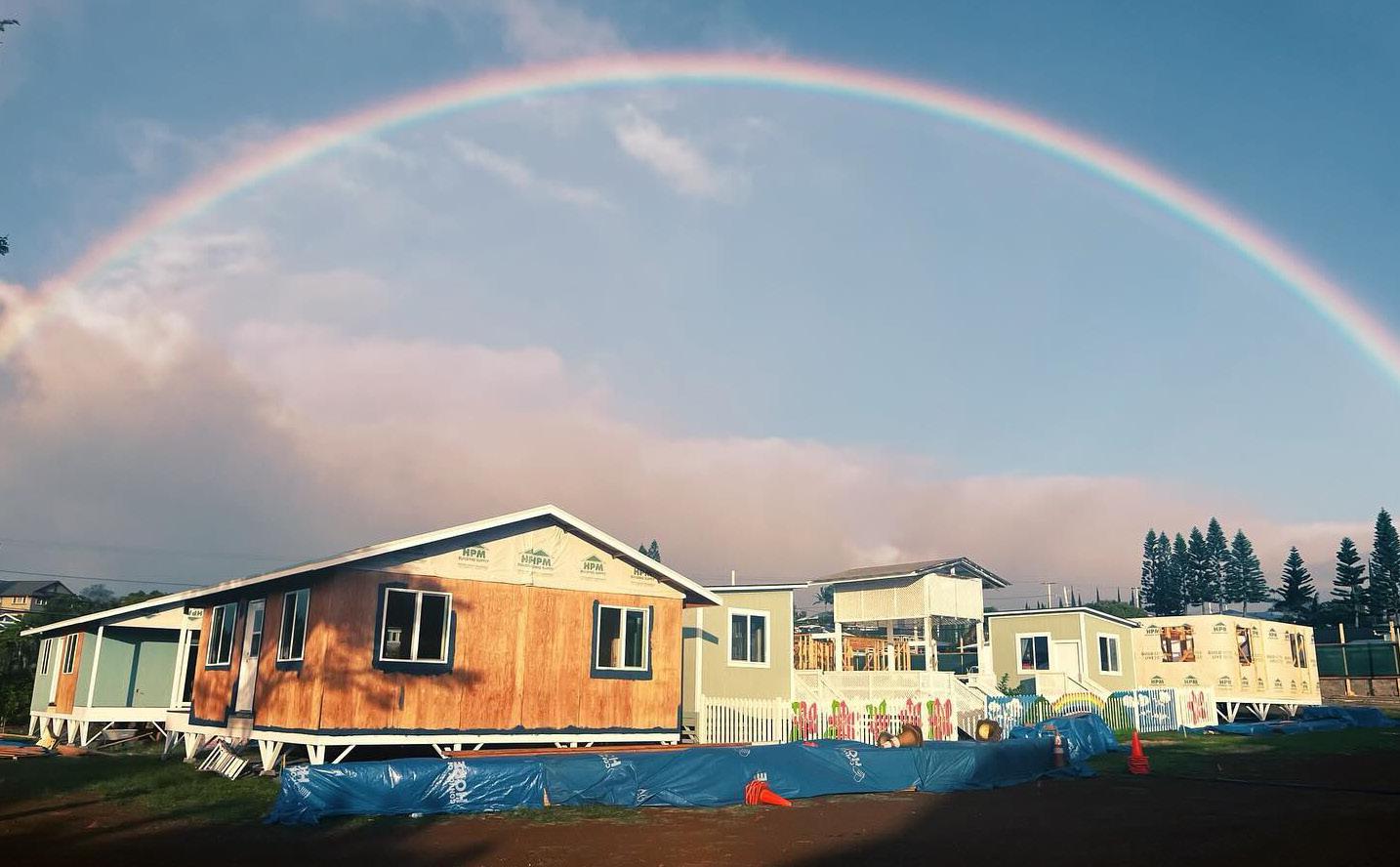
Labor
Love of A
A partnership in Chile provides opportunity and community despite differences
Romy and Leonard, owners of the Baron Garden Cafeteria, had always wanted to use their skills to contribute to ministry with the Church of the Nazarene. However, they were not sure how they would be able to make that happen until an opportunity arose with Mirada de Amor ministry.

Mirada de Amor is a child development center in Chile that serves children, teenagers, and adults with disabilities who no longer qualify for government aid. It is a multidisciplinary program that helps attendees develop life skills and financial management skills, receive age-appropriate education, and explore employment opportunities.
“We always wished we could collaborate and help in the ministry of our church, but we didn’t know how since our schedules didn’t allow us to help as volunteers,” said Romy.
Last fall, Mirada de Amor and Baron Garden Cafeteria entered into a partnership to provide job skills training and employment opportunities for students and adults with disabilities.
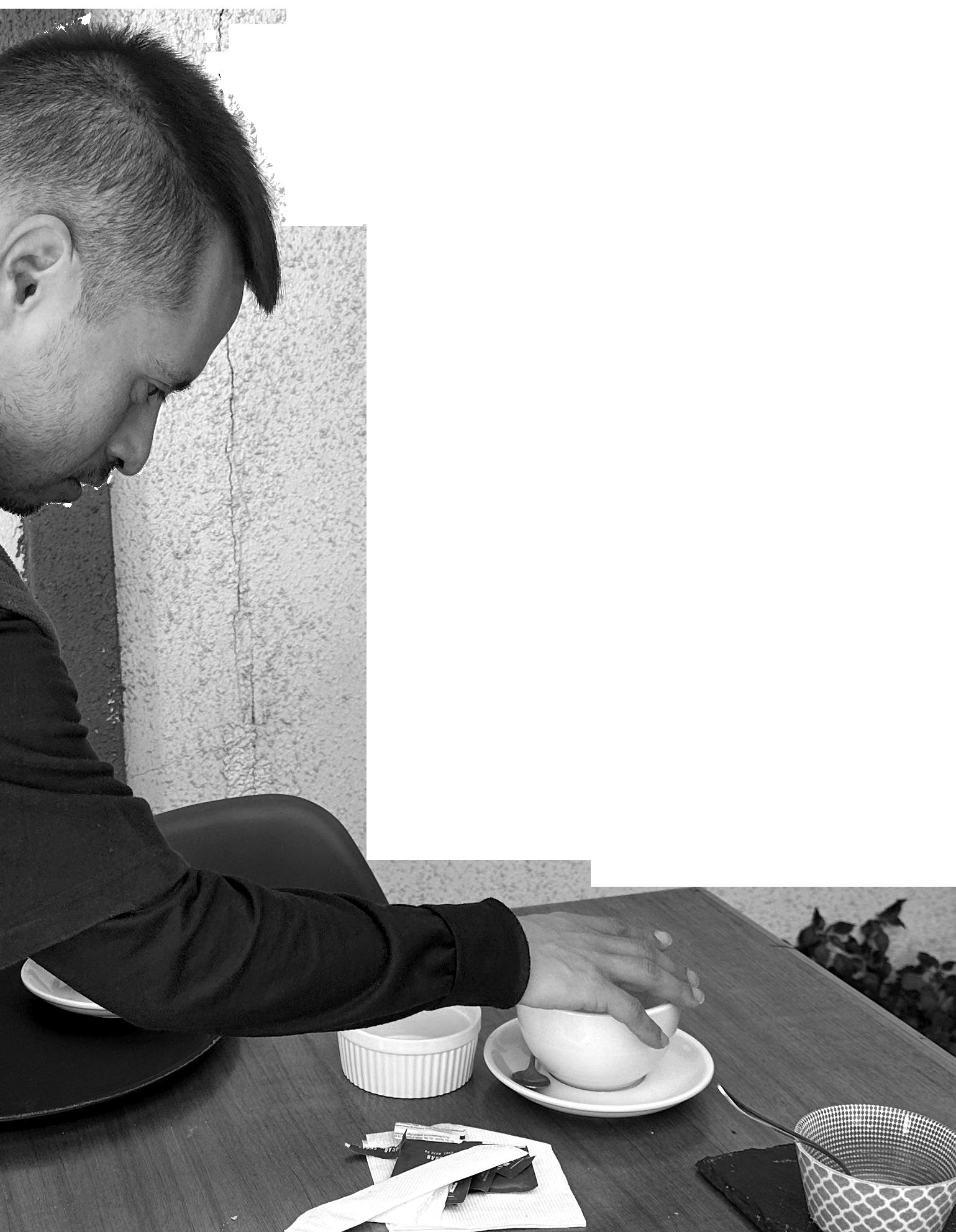
“Once we got this business up and running, we saw how God led us for this time and for this opportunity. Having the young people from Mirada de Amor in our cafeteria, working and learning has been a gift to us,” explained Romy.
The goal for this partnership was not only employment opportunities but also a chance to build relationships and community.
Tomás, a young man with Down Syndrome, has been unable to find work because employers did not want to hire a person with disabilities. When the partnership launched, he became the first person hired at Baron Garden Cafe. Tomás has learned how to prepare tables, serve customers, stock shelves, and prepare coffee, all of which he can now do independently. The team has worked together to overcome communication challenges
Story by Lorena Noe | Photos provided by Mirada de Amor
that come with Tomás’ disability. Through working together, they have formed deep friendships.
Rosa, Tomás’ mother, has been encouraged to see the way her son has grown.
“Our son has always surprised us in his development and in the way he has been acquiring independence in his daily life,” shared Rosa. “This new stage has been wonderful. We see how he feels more autonomous.”
The partnership is blessing the center attendees who have been employed along with the community as a whole. Community members see it as a way to come alongside the attendees and support their development.
“Customers ask to be served by certain students that they have built relationships with and the other employees have experienced so much joy from building these relationships,” said Romy.
Gaining work skills and job experience is just the first of many benefits of the partnership. Robinson works at the cafeteria alongside the students from Mirada de Amor. He has experienced growth, understanding, and joy from friendships with his co-workers.
“I feel blessed to be able to share and guide our new coworkers in this process of meeting and learning about working in a place that serves people,” explains Robinson. “They infect us with their willingness, joy, and excellent work, many times better than what a person without a disability can offer.”
This partnership was born out of the belief and motivation that love and service to others is what leads to the fullness of life that God intended for every person to experience, regardless of abilities. The needs of people with disabilities are not only therapeutic
“I feel blessed to be able to share and guide our new coworkers in this process of meeting and learning about working in a place that serves people.”
and educational. It is important that their value and dignity are recognized in a holistic way. Mirada de Amor is honoring that dignity by demonstrating that people with disabilities have something to offer society and they are an equal part of the community.
Joann works alongside the students from Mirada de Amor to ensure their safety on the job and to provide support when they need it. She sees her work as not just a job, but the work of the church active in the world.
“The church is more than a place where souls are restored. The church is also called to give light in the communities where it sits to bring quality of life and dignity to those who have been discriminated against for years,” Joann explained.

NCM MAGAZINE
This partnership is building bridges between people who would not have had the opportunity to meet otherwise, and it’s changing the lives of everyone involved.

“The church is more than a place where souls are restored. The church is also called to give light in the communities where it sits to bring quality of life and dignity to those who have been discriminated against for years.”
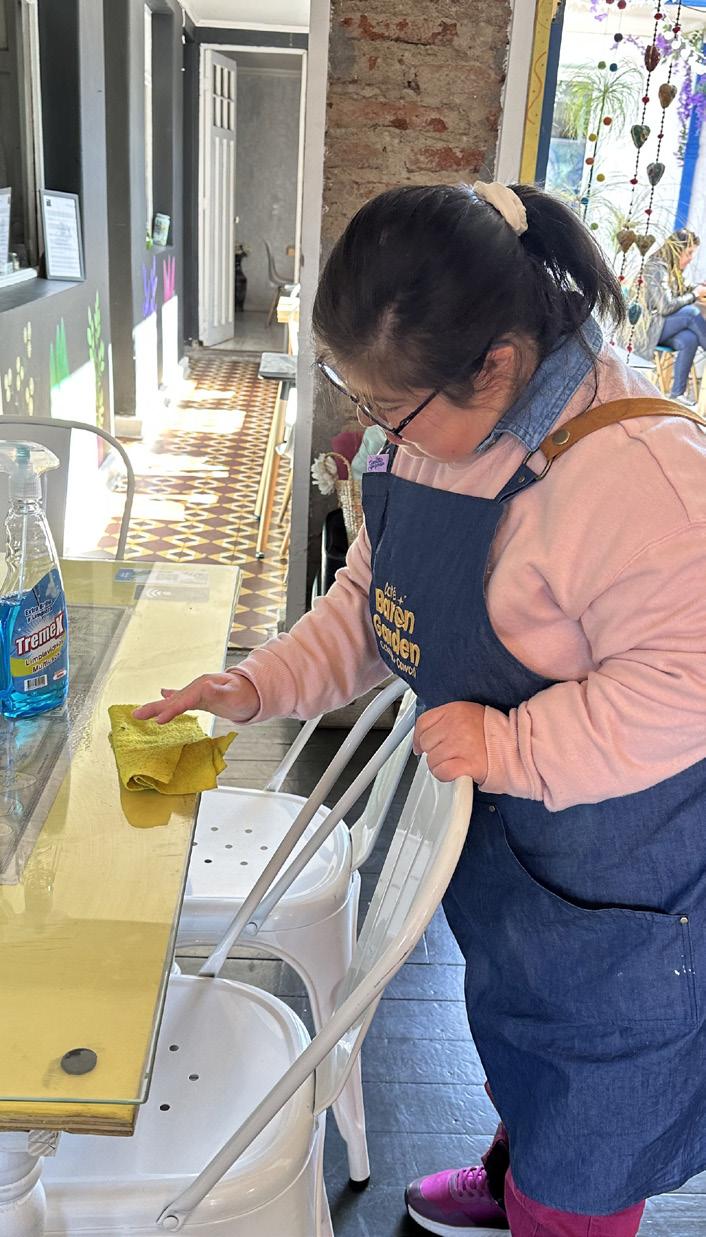
Those who guide this ministry and partnership see it as a first step to advocate for people with disabilities.
“Through our ministry we have learned to generate links and networks with other organizations in our community to work together for a true inclusion of people with cognitive disabilities,” said Joann. “It has been a real privilege to accompany these young people who amaze us everyday with their work, effort, and perseverance.”
Currently, there are twelve young people from Mirada de Amor who have been trained to work independently. These skills are making a difference in their lives.
“[Tomás] wants to perform more and more tasks on his own every day. He tells us that he is an adult, he has a job,” said Rosa. “It is beautiful to see how a small opportunity has been transformed into a great door for our son and for the young people with Mirada de Amor.”
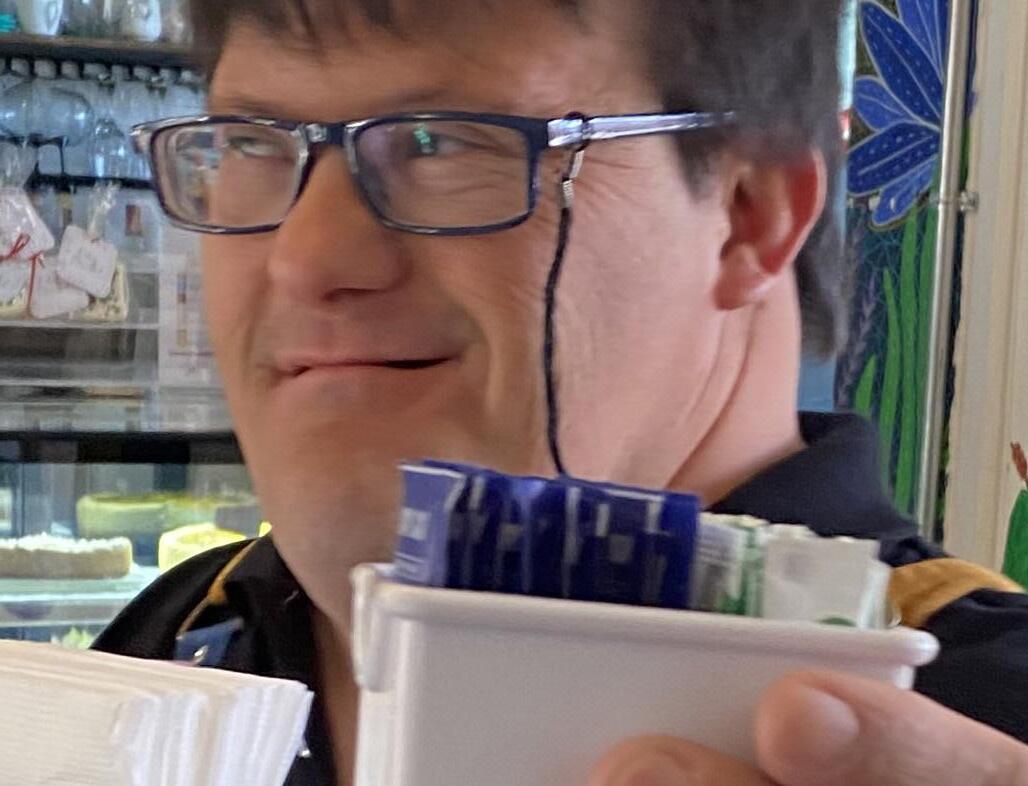
26 2024 ISSUE 01
This work program bolsters confidence and allows Tomas and his peers to experience a new sense of independence.
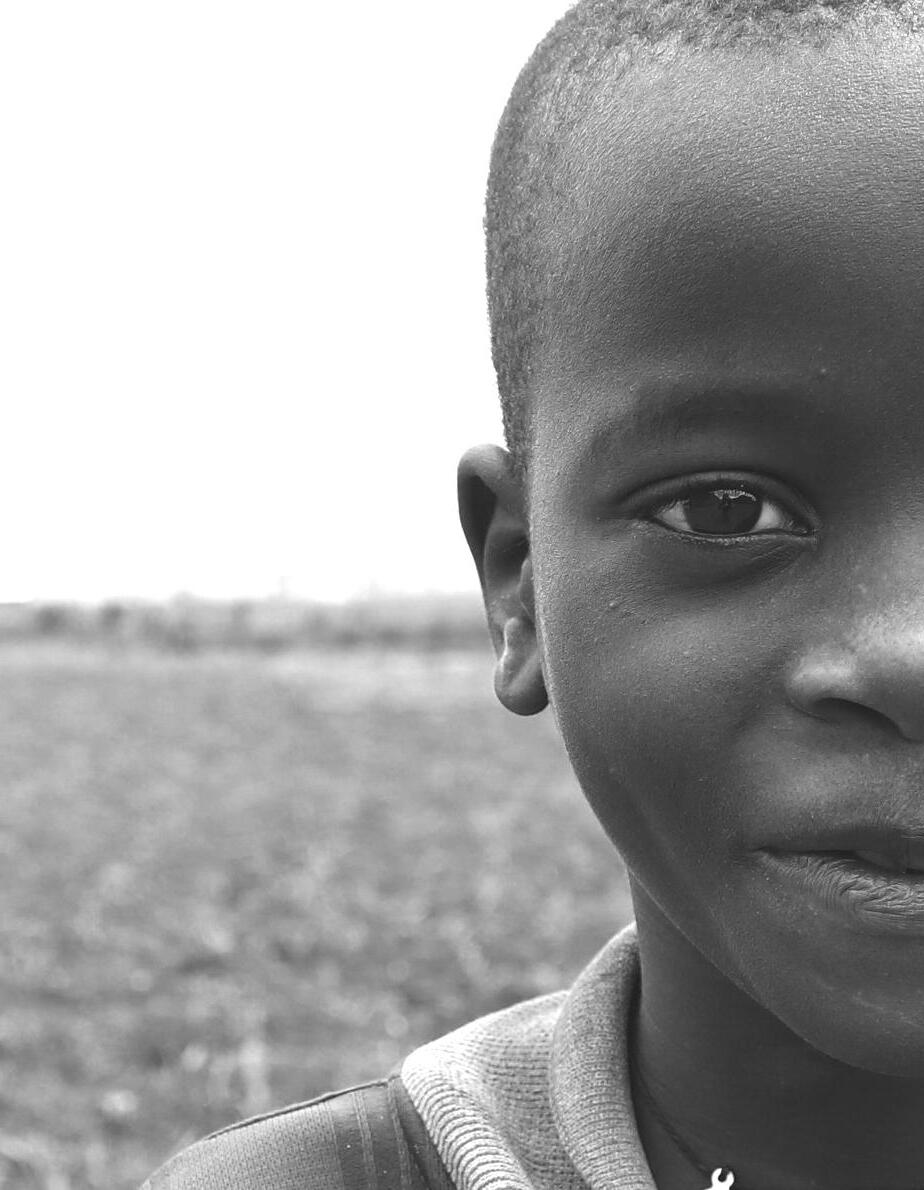
YOU CAN CHANGE A CHILD’S LIFE TODAY. Sponsoring a child TODAY could change their life FOREVER. Learn more at ncm.org/sponsor cs@ncm.org or 800.310.6362
Receiving
from Giving to
HOW ONE CHILD DEVELOPMENT CENTER BECAME SELF-SUSTAINING IN ORDER TO BLESS OTHERS
Story and Photos by Crystal Gibbons
In the bustling capital city of Astana, Kazakhstan, a small group of faithful families embarked on a faith-filled journey in 1996. Their mission was simple: establish the first Church of the Nazarene in Astana, a beacon of hope where they could share the transformative message of Jesus Christ with their community.
Fast forward to today, and what began as a leap of faith has blossomed into a thriving community of believers deeply rooted in faith and commitment to Jesus. At the heart of this growth lies a testament to the power of love and compassion embodied in their steadfast dedication to serving the most vulnerable among them.
In November 2014, they took a step toward embodying compassion when they began to partner with Nazarene Compassionate Ministries to provide sponsorship to ten children and establish a Nazarene Child Development Center. Little did they know that this would mark the beginning of a journey with profound implications
not just for the children they welcomed but for their community as well.
Pastor Sergey, the lead pastor of Astana Church of the Nazarene, saw the benefit of establishing a child development center very quickly.
“Our church has been conducting classes with children since the beginning of its formation,” he explained. “But when a support program appeared through the NCM ministry as part of sponsorship, it became much easier.”
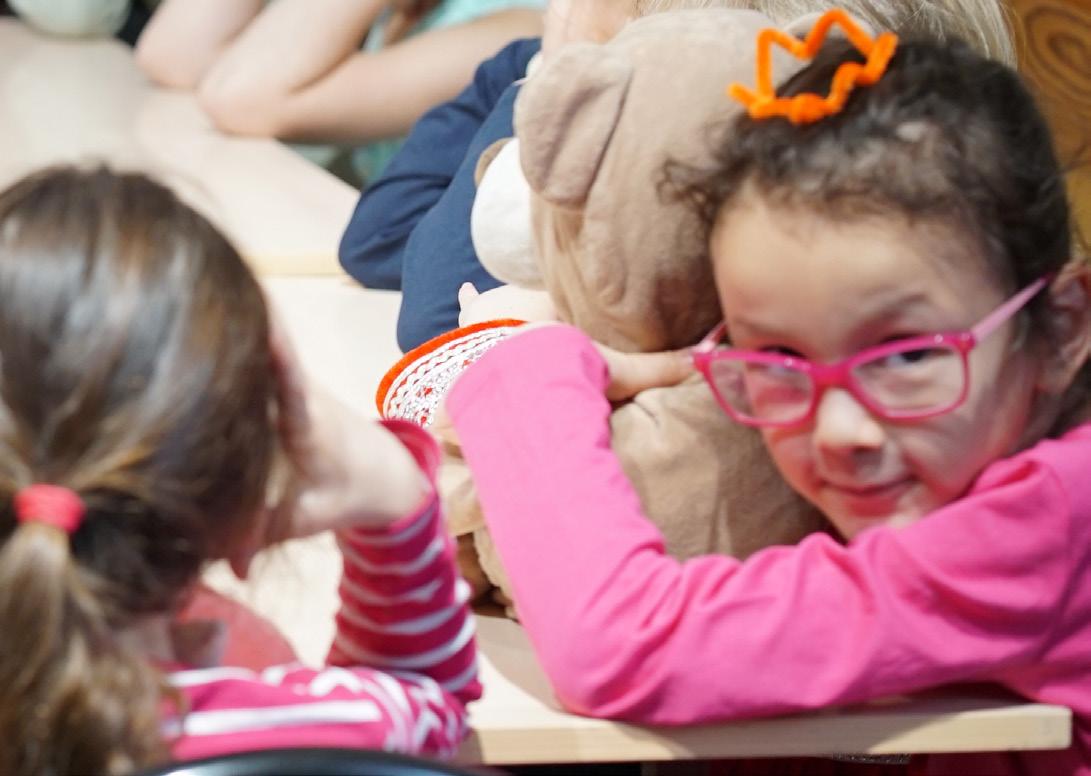
The mission of the Astana Child Development Center is to bring children to a saving knowledge of Jesus Christ and help them develop spiritually, intellectually, physically, and emotionally. They accomplish this through Bible teaching,
28 2024 ISSUE 01

nurturing children in the areas of trust, safety, responsibility, self-confidence, and awareness of their personal gifts and talents, and providing healthy meals and nutritional care. Activities also provide opportunities for the children to use their God-given talents and gifts to encourage healthy socialization, family interaction, and strong relationships.
Over the years, nearly 40 children have benefited from their sponsorship program, receiving material assistance and the invaluable gift of love and mentorship from their church family.
“Today the church continues to develop children’s ministry and has a team of ministers. The ministers had grown up from those children who came to classes,” said Sergey.
Then, as time passed and the church continued to flourish, a new chapter of their story took shape—a chapter of empowerment and self-sufficiency.
Last fall, during a holistic child development training with global, regional, field, and district leaders, the church in Astana came to a profound realization: the children once in need of assistance were now flourishing within a community that had matured and developed beyond expectations. The goals they had set out to accomplish had been fulfilled. With hearts full of gratitude and eyes set on the
future, the leaders made a bold decision: to transition from being recipients of aid to becoming providers of hope to others by choosing to become child sponsors.
It was a momentous occasion as the members of the Church of the Nazarene in Astana embraced their newfound role as a giving church, ready to extend a helping hand to those in need.
“Today I would like to say with joy that we have come to understand that it is more blessed to give than to receive. We want to grow in the knowledge of God as we give and not just receive,” said Sergey.
Their decision to sponsor a child of their own through the NCM Child Sponsorship program symbolizes not just a shift in status but a transformation of hearts and minds. It is a beautiful testament to the transformative power of faith and community, demonstrating what God can accomplish through his faithful followers who remain steadfast in their mission-minded and outreach-focused ministry.
“We will continue to take care of children as part of the ministry in the church,” explained Sergey. “If possible, we would like to participate in supporting global sponsorship, as well as looking and praying how we can help develop the ministry of other churches here in Central Asia.”
“Today I would like to say with joy that we have come to understand that it is more blessed to give than to receive.”
NCM MAGAZINE / NCM.ORG 29
Rising Together
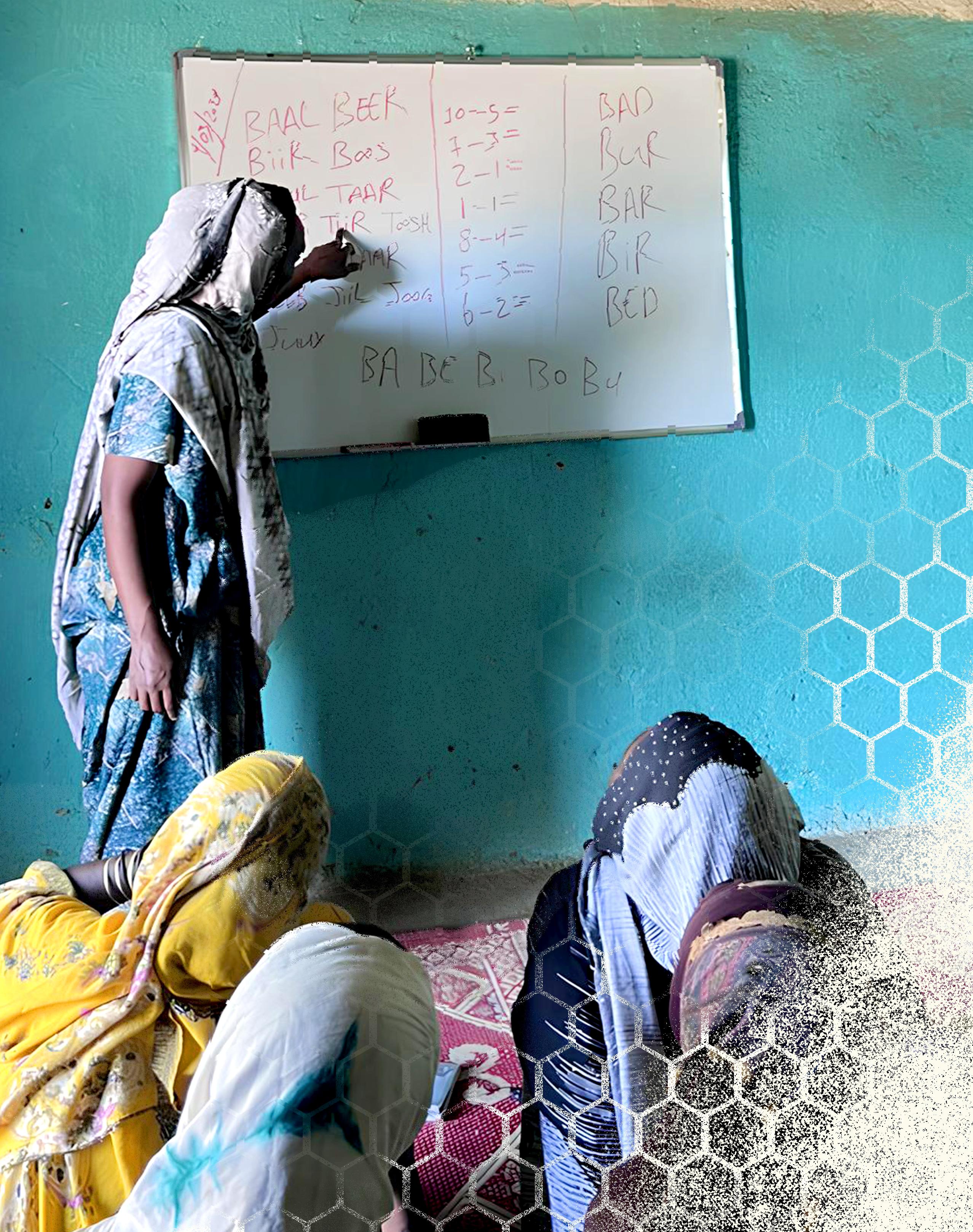
Together
How reading, writing, and bees are uniting a community

In a small rural community in Ethiopia, the sounds of laughter and conversation float out of a single-roomed building ...
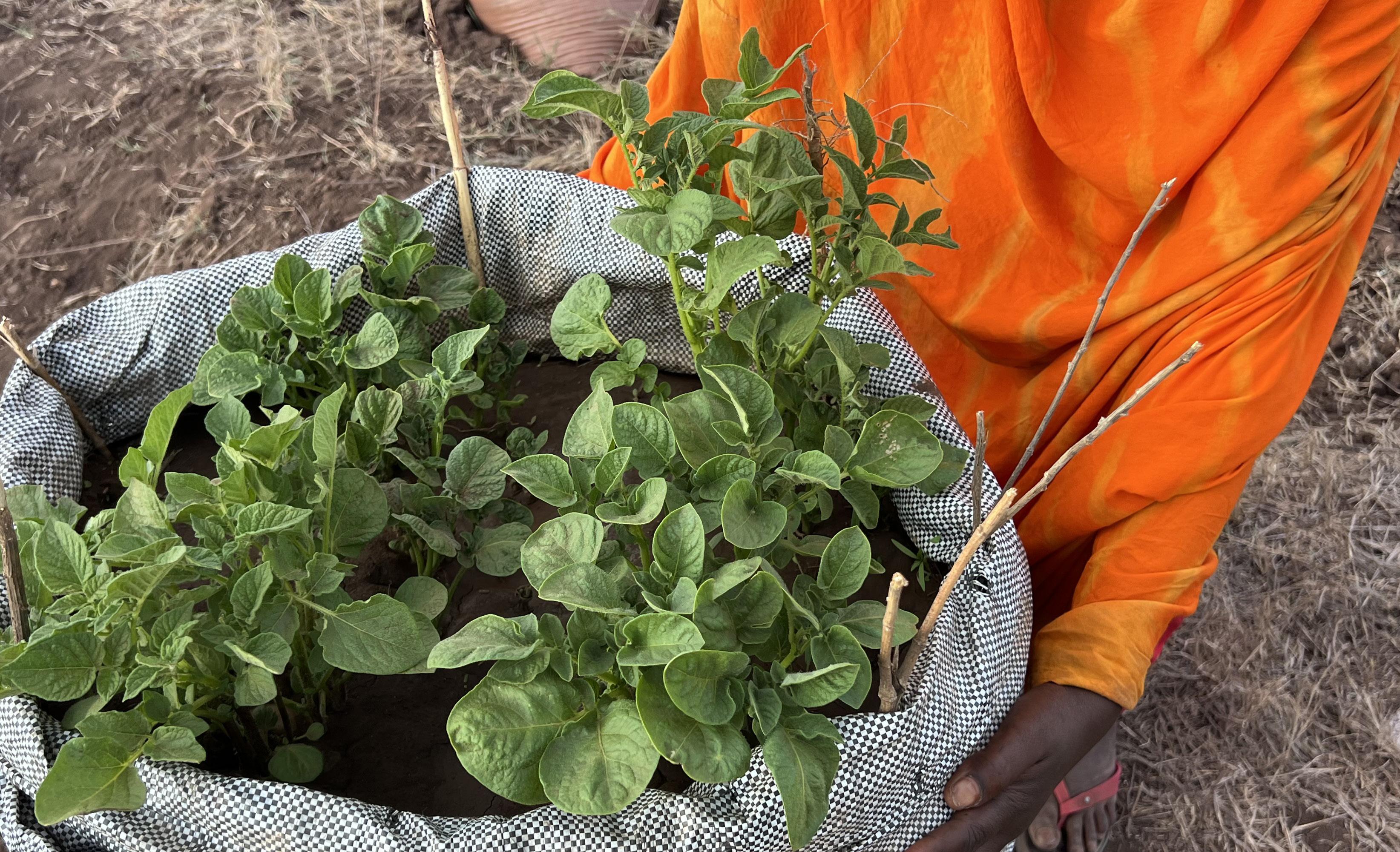 Story
by Dana Franchetti
Story
by Dana Franchetti
...being used as a school for women who dream of supporting their families through entrepreneurship.
The women gathered here are predominantly mothers, ages 15 to 60. Their friends and neighbors nominated them to join a women’s empowerment project developed through a partnership with the church in Ethiopia and Nazarene Compassionate Ministries. Through this project, a group of 100 women will ultimately start a cosmetology business or a beekeeping business. The cosmetology businesses will focus on henna, an art form used to create intricate designs on hands, arms, and feet, particularly on special occasions such as weddings. Beekeeping will produce honey, which is often used in local cooking but can be hard to find because beekeeping is not a common practice. Honey and henna are both in high demand, meaning the businesses will generate sustainable income for the women involved.
This two-year project began at the end of 2023, and its impact has already gone far deeper than
expected. Fana and Abal are a married couple and partners in ministry who dreamed, planned, and launched this project with NCM. Fana, lovingly referred to as “the mother of mothers” by the women, has a background in public health. Abal has a background in agriculture, peacebuilding, and community development. Their passion and drive, combined with their deep knowledge and skillsets for community development, advocacy, and peacemaking, have been key to the project’s initial impact. They have mobilized members of the faith community, particularly male members, to serve alongside the women to help tackle challenges and assist with tasks to maintain the farm.
“The mother is the seed of life. If we help the mothers, we help the entire community,” explained Abal. “We know that the mothers are the base of the community. They handle everything. They create happiness. We know that whatever a mother gains, they will pass it on to their children and their
32 2024 ISSUE 01
and Photos
families. They want to see everyone flourish.”
This project started as an opportunity for women to gain business skills and create financial stability for their families, but it quickly blossomed into so much more. The women are divided into groups of 10. Each group of 10 has a leader who makes sure group members are on track for the program but also cares for them amid the challenges of everyday life. Lelo was elected by her peers to lead one of these groups.
“I was elected not because of my ability or power but because my sisters trust me. I am a servant of them,” she said. “We are doing this beekeeping work, and it’s interesting because the bee colony works together and lives together. One is not above another; they are unified and they produce something good. They produce honey. They can't do that alone. It is the same for us. We are a colony of women working together to make our lives and our community better.”
One of the unforeseen benefits of the project is the unity, comradery, and friendship among the participants. Mebrat is a cosmetology student and has seen the change these friendships are making in the village.
“This project has already changed the village. These 100 women, we used to be so discouraged. . . [but] this is from God. We didn’t know each other before. Even though we live in a small village, we never interacted, or when we did, it was just for conflict. Many women used to fight with each other,” said Mebrat. “Now, we are one body. We love each other, and we take care of each other. When someone gets sick, we find out, and we go and help them. If a family doesn’t have food, we share what we have. We are a big family.”
THE POWER OF EDUCATION
As Fana and Abal planned and prepared, they knew numeracy and literacy were important for the group to succeed. Most people in the community had never had the opportunity to go to school and, in turn, had never learned to read and write.

community because of the lack of education for the mothers. The income was so low or even zero; the kids weren’t able to go to school, and they had poor health because going to the doctor is hard when you can’t read or write.”

Fana and Abal recognized the power of literacy and the opportunity that they had to impact generations.
“Development is a process, and it is a whole life change. So instead of just handing them things that they need, we knew the power education has for life change,” said Abal. “If one of these women moved away today, they wouldn’t lose the knowledge that they now have. As the mothers learn to read and write, they teach that to their children. This will impact a whole generation and beyond.”
When Fana and Abal approached the community about providing education, they asked the women to nominate someone who could be a teacher. The women nominated three people who went through a rigorous testing process, and eventually, a young woman was certified to teach classes.
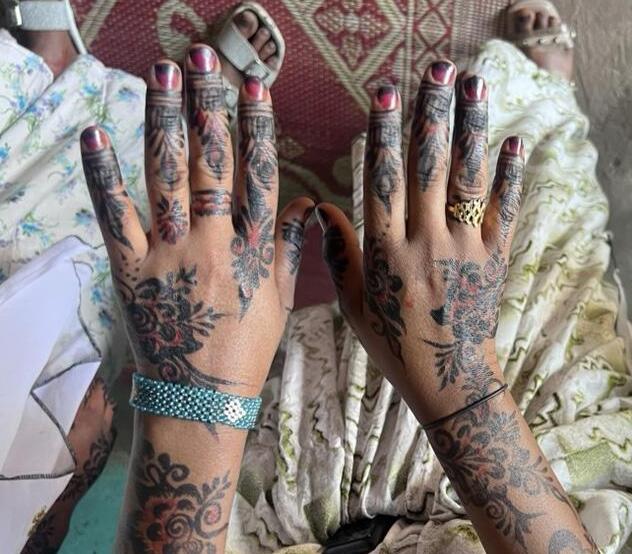
“We know this community very well,” said Fana. “A lot of things weren’t happening for the people in this
Just a few of weeks after classes began, the women were astonished to see their progress with learning to read, write, and do math.
“Many people said that these older women won't be able to learn a new skill; they won't be able to read and write and learn beekeeping; but after just [a couple of] months, they came back and saw the truth,” said Fana.
The women’s joy as a result of this education is palpable for all involved.
“One day, I saw a woman crying, and I asked her, ‘What has happened to you?’ and she said, ‘I never believed that I would be able to write my name. After one day, now I can!’ In my heart, I feel the weight of this,” explained Abal. In addition to writing their names, they can fill out
NCM MAGAZINE / NCM.ORG 33
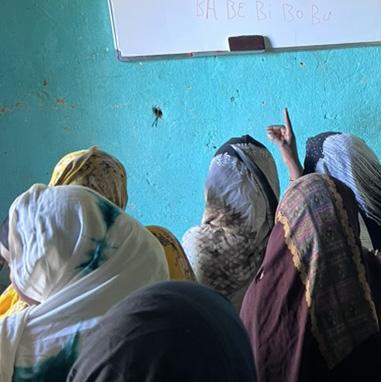
forms, manage their own online banking, and even apply for their first-ever government ID.
Lelo did not know how to read or write before this project started, but she was one of the women who picked up the skills quickly.
“Imagine being a blind person. You can't see, you can't get around by yourself, and then a miracle happens, and you get your sight for the first time,” said Lelo. “Imagine how that feels. If you ask a person what good does this do for you, how can you put that in words? My life has changed. I have gone from darkness to light.”
Literacy education makes everyday tasks easier and creates newfound independence for families in this community; it also creates a new level of safety. Mebrat and many others had experienced theft and fraud because they couldn’t manage their bank accounts independently.
“Before I could read and do math, I couldn’t use my banking app, I couldn’t use my phone, I couldn’t read messages. [Previously], I would have to ask others to help, and sometimes they would
take my passwords and then steal my money. Now, I can keep it a secret. Now I am secure.”
In addition to the added layer of security created for households, there is a renewed passion for ensuring that the children in the village have access to education. The school in town has been non-functional for a very long time. Now the mothers are learning and able to pass this knowledge on to their children.
“The impact this is having on my children is so big. I have become a teacher for them. My kids study with me every day. They now know how to read, write, and study math. I am even teaching my daughter how to do henna,” said Mebrat.
“My kids want to go to school. They are having this opportunity so much younger than I did. Can you imagine what they will be able to do now that they are so many steps ahead of me?”
The mothers are working together to petition the government to reopen the school in the community, so their children can continue to learn and grow.
FROM EDUCATION TO ADVOCACY
With the power of education comes the ability for people to advocate for themselves, for their children, and for their community. One of the first learning outcomes for the women was the ability to fill out necessary forms and petition the government to help tackle the challenges they were facing within the community.
“We are learning that the community can change with just simple steps. Many people want to start with big projects, but if you start with just basic empowerment, it works,” said Abal. “They are dreaming about what they will do in the future. They are finding their voice.”
Fana and Abal are teaching the leaders of this project to find appropriate offices in order to receive assistance. Fana knew that approaching the government can be intimidating without knowing what to say or what forms to fill out.
Of course, it does not always
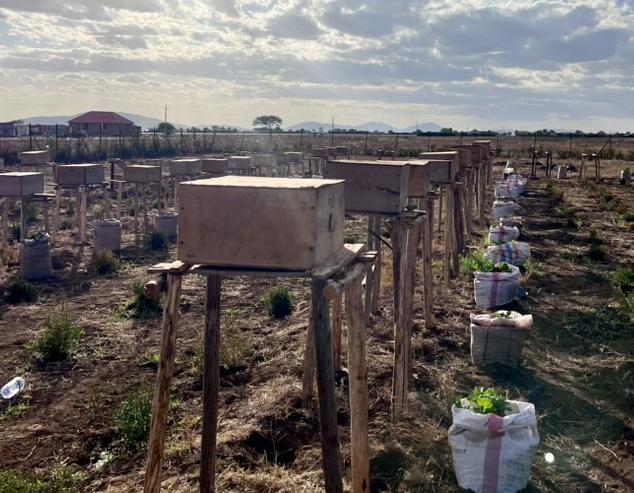
34 2024 ISSUE 01
result in immediate action, but the size of the project lends credibility along with all the women’s accomplishments in a short time.
“We went to a big conference where all the government officials were. We told them we need a clinic, we need a pharmacy, and we need a good school,” explained Lelo. “The government officials asked, ‘Who are you people?’ We said we are 100 women, and we know we have rights.”
The government, along with the local faith community and other nonprofit organizations, has
for my family; I will send my kids to school and have water and a proper house. If our income becomes sustainable, our lives become sustainable.”
As these 100 women marvel at their progress in just a few short months and look forward to starting their businesses and reaping the fruits of their hard work, there is a deep sense of hope and anticipation.
“[This project] has already had an impact on the community. It has brought us from darkness to light. I have confidence, and I trust my community and myself. We are united in ways we haven’t been
“ We are doing this beekeeping work, and it’s interesting because the bee colony works together and lives together. One is not above another; they are unified and they produce something good. They produce honey. They can't do that alone. It is the same for us. We are a colony of women working together to make our lives and our community better.”
been encouraged by the quick progress of this project. They have developed close connections to Fana and Abal to help provide resources for the community to succeed. They have donated fence materials for the beekeeping farm, whiteboards and supplies for the classroom, and training for the leadership. Additionally, members from the faith community have donated water, the use of property for up to 10 years, and funds to build storage. Another organization contributed wood to build the bee boxes.
FROM DARKNESS TO LIGHT
Literacy and numeracy were the first steps in developing this project in a sustainable way. Now that the foundation has been laid, 70 women have begun taking classes to develop their beekeeping skills, and 30 women have begun taking cosmetology classes, specifically henna designing. By mid-2024, they will begin taking business management classes and will start selling their craft. By the end of the two-year project, each woman will have the skills, tools, and resources to run her own business.
“This skill I am learning, no one can take it from me. There is a good market for honey, and I can do this while I care for my kids. Not only that, but I can teach others how to do this work,” explained Lelo. “We are working very hard now, but eventually, it will get easier. Right now, my kids struggle with not enough to eat. When I have income, I will provide
before. We have one voice to go to the government and ask for what we need,” said Lelo. “We have skills now, which means we have hope and a vision for the future. My hope is so big, and my vision is so clear. This life we are living is a miracle.”
Learn more at ncm.org/womenofdignity
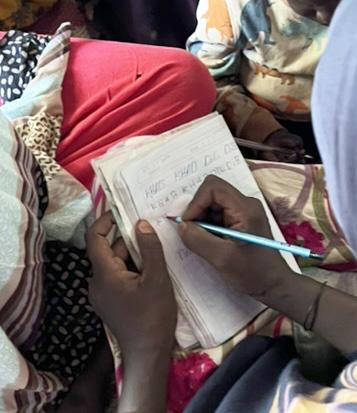



READ
STRONG AND WEAK: Embracing a Life of Love, Risk, and True Flouring by Andy Crouch
Demonstrates that people who flourish are strong and weak. Though many are tempted to grasp for power or withdraw into safety, true flourishing calls us to live like Jesus by using our authority to benefit others and be willing to face and embrace suffering.
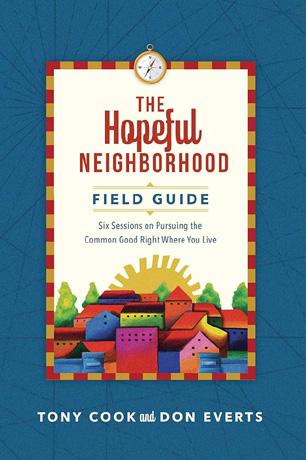
STUDY
THE HOPEFUL NEIGHBORHOOD FIELD GUIDE
By Don Everts
Offers tangible suggestions, resources, and challenges to help anyone pursue the work of helping our neighborhoods thrive. This guide will help you discover the gifts of your neighborhood, imagine new possibilities for the future, and pursue the common good through the love of Jesus.
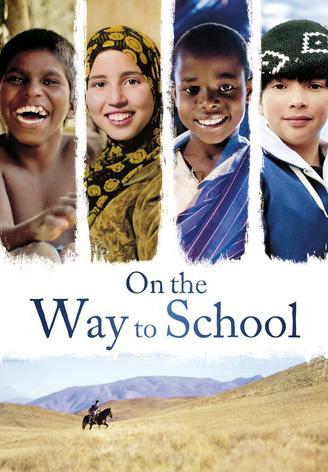
WATCH ON THE WAY TO SCHOOL
A documentary that follows four children who live in vastly different parts of the world but have the same goal: to change their lives and follow their dreams by attending school. Follow each of them on their challenging and dangerous journeys toward education.
LISTEN
REV. ASTRID CAMACARO: Central Church of the Nazarene on October 9, 2023
Rev. Astrid shares about the ways local churches care for their communities on the South America region. She challenges us to work together in unity to transform our own communities through compassion and justice.
Available anywhere you listen to podcasts.
SCAN HERE TO LISTEN NOW
go
deeper
Prayer
Dear God, we pray


forPeace
That you would make us a people of reconciliation
Guide our feet into the places of division
Where people war with each other Where enemies deny your beauty
That lives in each of us
Give us hands that bind together
Instead of tearing apart
Use us to heal hurts and repair relationships
And help us to choose your love instead of fear
Forgive us Lord for being people who in ignorance or intention have excluded and separated and have made enemies of your children
Give us strength and wisdom to cross uncomfortable barriers
The barriers between our world and politics
Our differing ideologies and our God-given races
Remind us Lord
What it means to be one with our brothers, our sisters, our neighbors, our friends and our enemies
Lord, lead us to be reconciled with you and one another
Our Lord and our God, we pray
Make us people of reconciliation.
May it be so,
NCM MAGAZINE / NCM.ORG 37
Amen.
TO LISTEN TO THIS PRAYER VISIT: ncm.org/PrayerForPeace or SCAN HERE >
voices

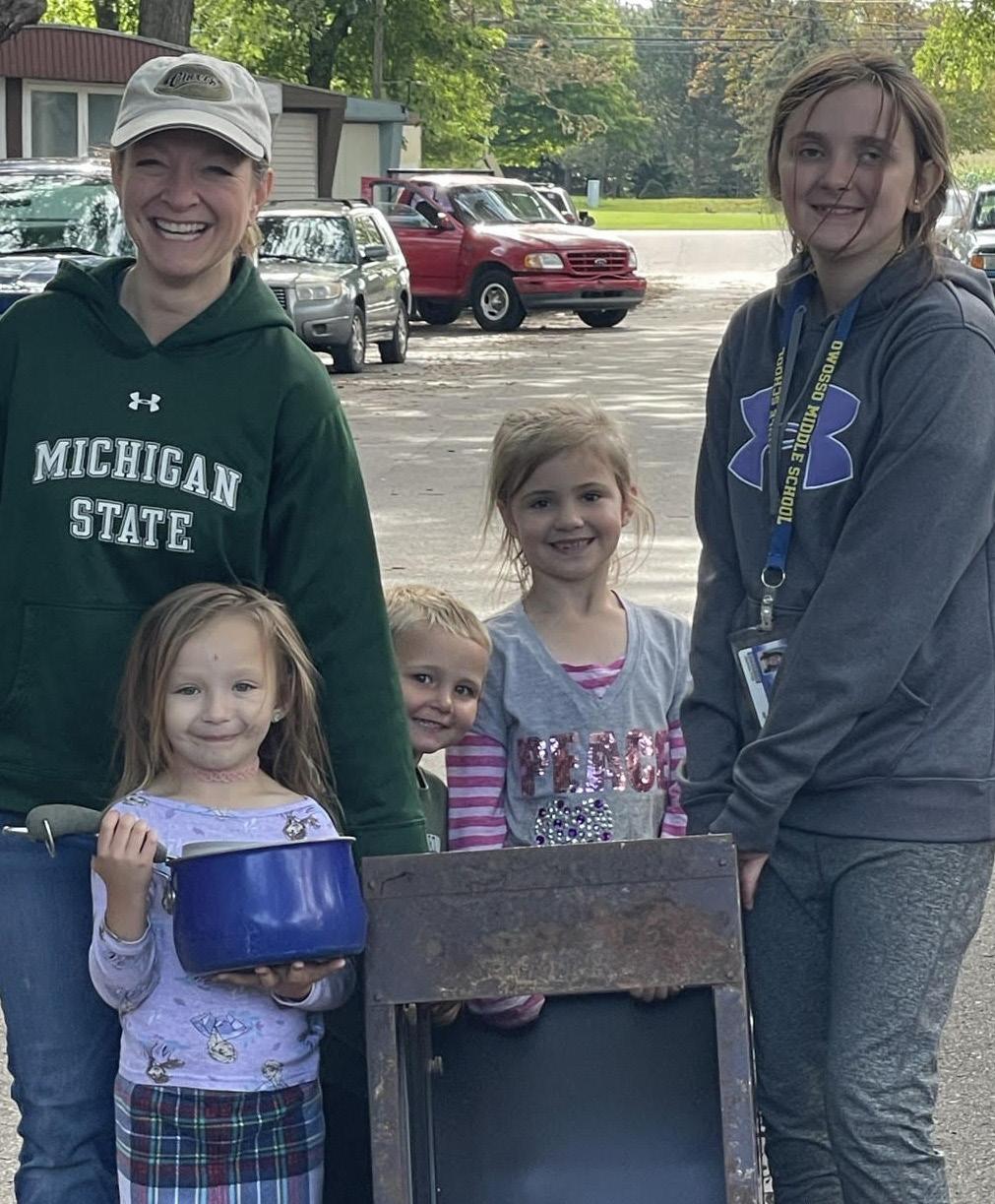
This is what neighbor love looks like in practice: Realizing that you might not understand my pain but committing to taking it seriously. Listening instead of gaslighting. Believing instead of doubting. Perhaps then, love can cast out our fears of getting it wrong and stretch us enough to be in community with one another.
Amy Kenny
To read more about how long-term relationships prepared a church for disaster response, turn to pg 16.
38 2024 ISSUE 01
snapshot

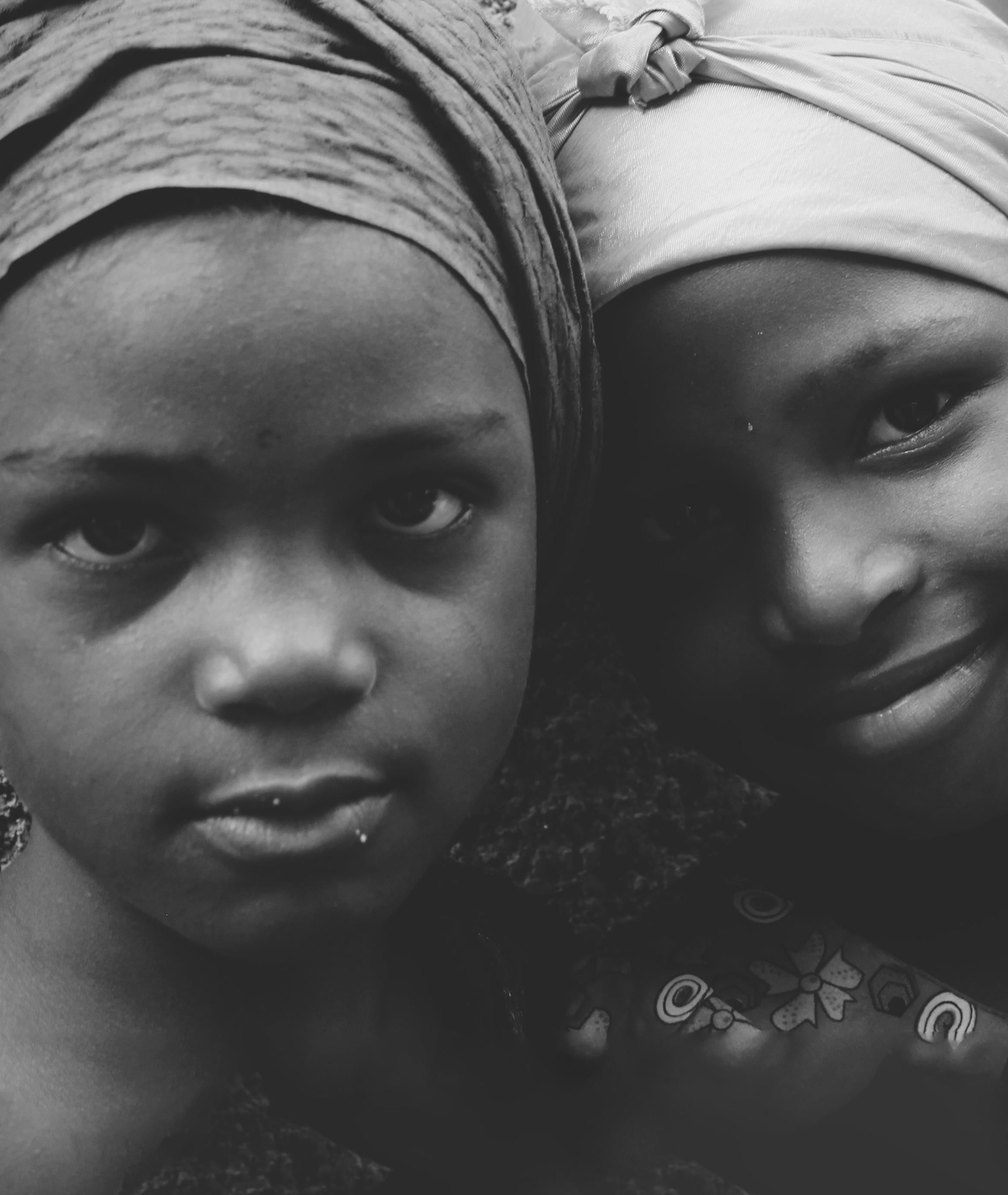
For more information about signing up to become a sponsor, visit: NCM.ORG/SPONSOR -OR- SCAN THE QR CODE Have questions? Email cs@ncm.org or call 800.310.6362 YOUR SPONSORSHIP UNLEASHES CHILDREN’S POTENTIAL. BUT IT ALSO SHOWS THEM THEY’RE NOT FORGOTTEN. NAZARENE COMPASSIONATE MINISTRIES
Church of the Nazarene 17001 Prairie Star Pkwy Lenexa, KS 66220
(800) 310-6362
info@ncm.org
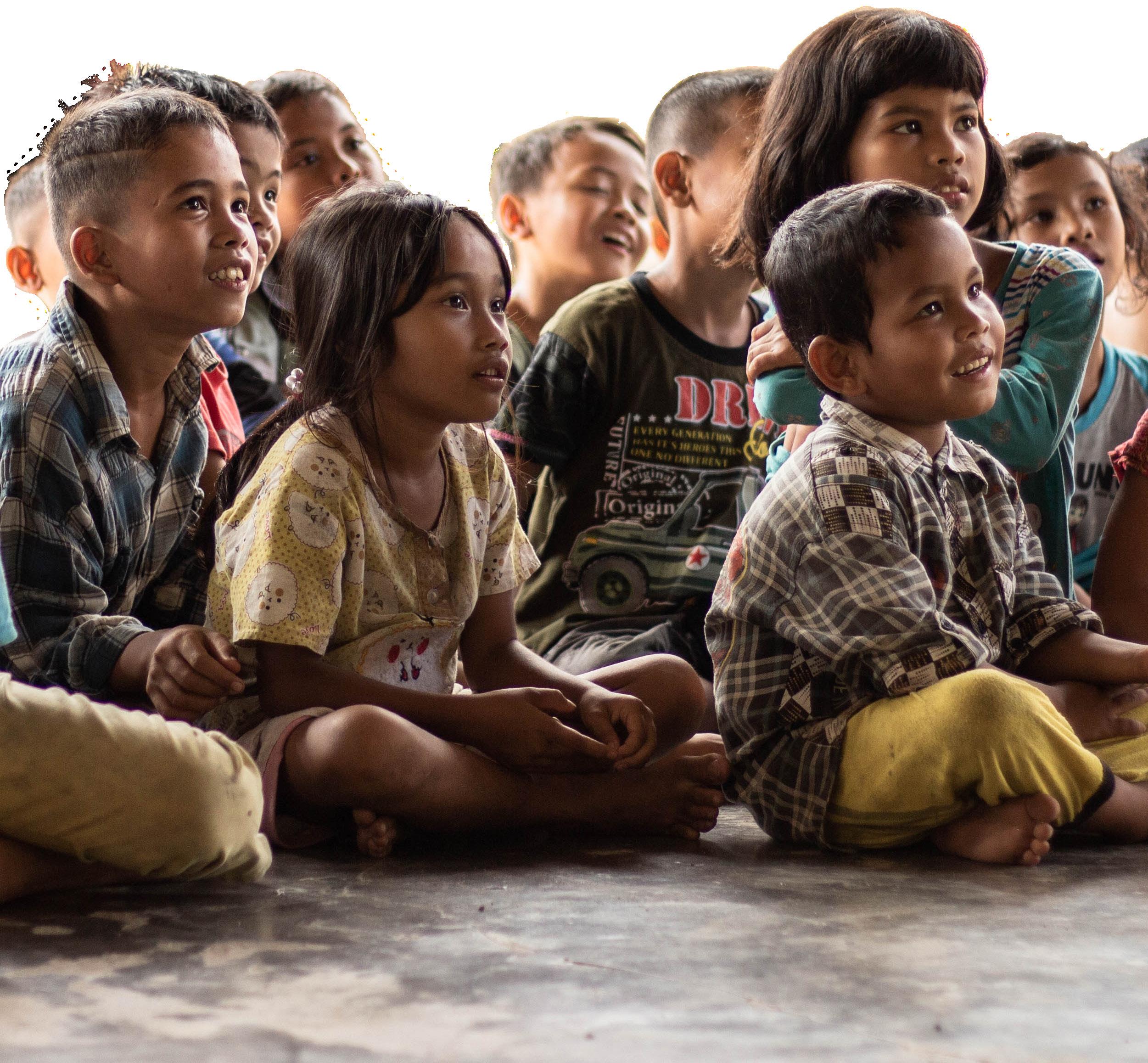
Nonprofit Org. U.S. Postage PAID General Board of the Church of the Nazarene NAZARENE COMPASSIONATE MINISTRIES
FOR MORE STORIES OF IMPACT FOLLOW US ON SOCIAL MEDIA @nazcompassion










 Nell Becker Sweeden, Director of NCM
Nell Becker Sweeden, Director of NCM








 Story and Photos by Brandon Sipes
Story and Photos by Brandon Sipes






 In March, a group from the Africa Region gathered to study and brainstorm peacebuilding practices for their own communities.
In March, a group from the Africa Region gathered to study and brainstorm peacebuilding practices for their own communities.


















 Community members didn’t hesitate to jump into action when their neighbors needed it most.
Community members didn’t hesitate to jump into action when their neighbors needed it most.



 Images
Images


































 Story
by Dana Franchetti
Story
by Dana Franchetti















